‘NO NEGOTIATIONS WITH TERRORISTS’: SHARIF CONFIDANT REJECTS PTI DIALOGUE
ISLAMABAD STAFF REPORT
EXPRESSINGhis disapproval of the ongoing talks between the government and the opposition Pakistan Tehreek-i-Insaf (PTI) party, a prominent member of the Pakistan Muslim League-Nawaz (PMLN) declared that negotiations should never be held with individuals or groups who are “affiliated with terrorism” and aim to “dismantle national institutions.”
The statement from Javed Latif, a close ally of deposed prime minister Nawaz Sharif, comes at a crucial time when the ruling Pakistan Democratic Movement (PDM) coalition and the opposition party of former prime minister Imran Khan are holding a formal dialogue to break the months-long deadlock over the timing of elections in the country.
Talks between the two, facilitated by the Supreme Court, began Thursday and have been seen as a breakthrough in the months-long deadlock on elections.
Presenting its demands during successive sessions, PTI has called for the speedy dissolution of all parliaments and elections no later than August. The party also said that the delay to the election in Punjab and Khyber Pakhtunkhwa should be granted legal cover through a constitutional amendment and sought the return of its resigned MPs to the National Assembly to achieve this.
In the second round, the government presented its own proposals, reportedly to conduct polls in September to allow for the presentation of the upcoming fiscal year’s budget in June.
The second round concluded on Friday with both sides agreeing to consult with their respective leaderships before reconvening for a final session on Tuesday.
Addressing party workers and sup-
porters on Saturday night, Khan said his party was willing to discuss the election date only after the dissolution of the National Assembly before May 14. This deadline is in accordance with the April 4 order of the Supreme Court regarding
elections in Punjab. Latif questioned the rationality of holding talks with those who he accused of referring to the government as “Mir Jafar and Mir Sadiq” — two 18th-century Indian courtiers infamous for betray-
ing Muslim rulers of the subcontinent to British imperialists. He further alleged that negotiations with terrorists and those who are benefiting from global powers could not be conducted. The PML-N leader also criticised those who are causing unrest in the country during a time when the economy is improving without the aid of the International Monetary Fund (IMF). Latif argued that conducting such talks would put Pakistan’s security and growth at risk.
Latif urged individuals in positions of power, an oblique reference to the military, to take responsibility for their “actions, which have led to the emergence of leaders like Khan,” and for the “consequences that follow.” He warned that if the trend continues, the future of Pakistan would remain uncertain.
Latif also said the PML-N party would not allow the upcoming elections to be held without the participation of its leader, Nawaz Sharif. He added that Khan could be challenged in the political field only after justice has been served.
Khawaja Asif declares elections after Sept as Imran's nightmare
ISLAMABAD STAFF REPORT
Federal Minister for Defence Khawaja Muhammad Asif on Monday said that an election after September was Imran's nightmare because he wanted an early election.
He said that Imran has still a hope that someone might expedite elections for him once again.
Talking to a private news channel, he said that the election should take place at its scheduled time in October 2023, neither earlier nor later.
Answering about Imran’s popularity, he claimed that
Imran Khan's popularity was limited to social media, as
High food prices continue to plague KP residents after Ramzan
Residents of Khyber Pakhtunkhwa (KP) are voicing their frustration with the local district administration’s inability in controlling food prices that have failed to reduce even after Ramadan and Eid-ul-Fitr have ended. As traders are pricing goods at their discretion, citizens have no choice but to continue paying inflated prices for essential commodities, such as chicken, meat, vegetables, and fruits.
Reports say that a committee with the task of determining chicken rates was formed, however, it has failed to convene its meetings for months, which has left chicken sellers to their own volition to set desired prices. This has resulted in the price of live chicken skyrocketing to Rs425 per kilogram, up from Rs. 395 per kilogram the previous day.
Moreover, vegetable prices are also experiencing high volatility, making it challenging for consumers to plan and budget purchases. Lack of proper check and balance by the district administration and the resulting high rates have made fruits to be increasingly inaccessible to citizens, as well.
Despite the mounting prices of basic commodities, district administration officials have failed to take any action or leave their offices to assess the situation. This lack of oversight has left local residents at the mercy of the profiteering mafia.
Amidst this uncontrolled food inflation, while KP residents continue to struggle with high food prices, many are calling on the district administration to take immediate action to regulate these prices and protect the interests of citizens.
ATTENTION
Some readers have complained that they are not getting the magazine with their newspaper copy. Please call or WhatsApp us at the following number to register a complaint.
Contact: 0307-7338168 irfan.farooq@pakistantoday.com.pk


Govt, PTI to hold final round of talks on elections today
evidenced by the low turnout in their today’s rallies on Labor Day.
Furthermore, Asif accused PTI of collecting money under the guise of election tickets. “Imran Khan is an opportunist and a shrewd bargainer”, he added. He also remarked that In terms of negotiations with PTI, he believed that it was pointless to negotiate with a person who lacked credibility, as Imran Khan was prone to making decisions but then reversing them due to his indecisive mindset.
As for the demand for elections within 90 days, Asif questioned why this requirement applied solely to Punjab Province?
PM directs to stay alert, use all resources for help of people during current rain spell
ISLAMABAD STAFF REPORT
Prime Minister Shehbaz Sharif has directed the federal and provincial departments to stay alert and use all the resources for the help of the people during the current rain spell.
According to a statement released by the Prime Minister Office on Monday, the Prime Minister directed the National and Provincial Disaster Management Authorities to strictly monitor the situation. He said the federal departments should work in close collaboration with the provincial governments and departments.
Shehbaz Sharif said where necessary, provision is made for the protection and assistance of the public and that the people be shifted to safe areas immediately.
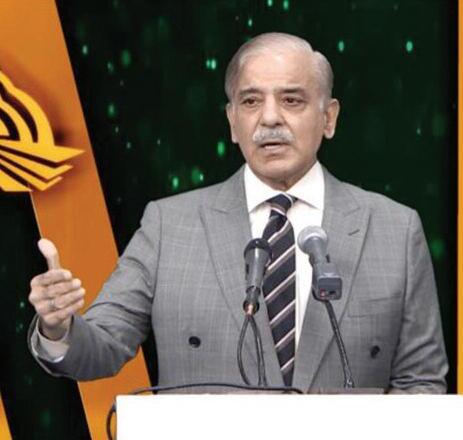
The Prime Minister also directed the National Highway Authority and other relevant departments to monitor interprovincial national highways. He directed to ensure effective arrangements for traffic flow
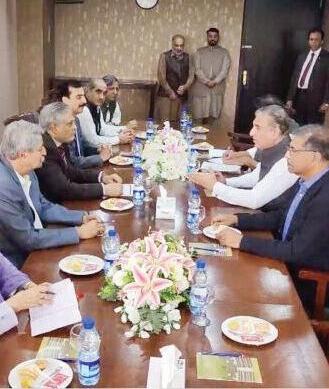
and public convenience on Quetta-Karachi highway in Lasbela and Quetta-Sibi highway in Bolan. He said the people should be alerted in various highways and affected areas. He said protecting life and property is the priority.
Shehbaz Sharif said all civil
service departments should remain vigilant in the current rains and work with national spirit and sense of responsibility. He also appealed to the people to take precautionary measures in the severe weather conditions and cooperate with the government departments.
ISLAMABAD STAFF REPORT
The government and Pakistan Tehreek-i-Insaf (PTI) have ‘mutually agreed’ to change the timing of negotiations to break the ongoing political and constitutional impasse and agree on one date for holding elections in the country.
The third round of negotiations were originally planned for 11am on May 2nd but, according to Chairman Senate Sadiq Sanjrani, they have been moved to 9pm on the same day as per a mutual agreement.
The talks between the government and PTI will be held at the Senate Secretariat, Sanjrani confirmed on Monday.
The decision to change the negotiation time was made due to the busy schedules of the members of the government and the PTI negotiation committees, he explained. Efforts to find common ground through dialogue between the leaders of the ruling alliance and the PTI have continued as the talks remained on track. However, the talks have not yet yielded results so far. Leaders from both sides have refused to let their differences come in the way of forging a consensus on general elections.
On the second day of talks, the government and the PTI teams once again entered a room in the Parliament House, shut the door, only to emerge after a couple of hours, agreeing that the third –possibly final – round would take place on Tuesday after which a decision would be announced. Though the leaders sounded hopeful about future prospects, the second round of talks ended with both sides agreeing to take input from their leadership and continue negotiations.
On Saturday, PTI spokesperson Fawad Chaudhry announced that the former ruling party has decided to continue negotiations with the government regarding the framework for elections within the bounds of the Constitution.
Taking to Twitter, Fawad stated that the PTI is committed to upholding the orders of the Supreme Court and rejecting any attempts to “sabotage the talks”.
He further said that the final agenda for the negotiations will be discussed on Tuesday.
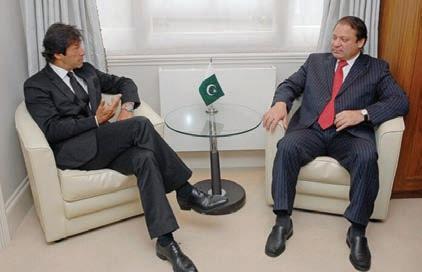
Who orchestrated Police attack on Ch Shujaat’s House?
LAHORE MIAN ABRAR
In an interesting sequence of events, the Police assault on the residence of Pakistan Tehreek-i-Insaf (PTI) President Chaudhry Pervaiz Elahi was smartly diverted towards the residence of former prime minister Chaudhry Shujaat Hussain who is an ally of Prime Minister Shehbaz Sharif.
Though caretaker Chief Minister Mohsin Naqvi has taken notice of the police assault at Shujaat’s residence and subsequent injuries to federal minister Salik Hussain and others who got injured due to the police mishandling, Chaudhry Shujaat wants the matter needs to be probed into thoroughly to help ascertain the facts behind the assault at his residence.
Reliable sources in Chaudhry family have informed Pakistan Today that an AntiCorruption team escorted by Punjab Police had arrived at the residence of Chaudhry Pervaiz Elahi for investigation but the employees locked the gate and the situation aggravated into a police encounter.
While the police action started, the sources said that a sister of Chaudhry Shujaat misled the police about whereabouts of Pervaiz Elahi, pointing out that Elahi was present inside Shujaat’s residence.
“Hence, the police action swiftly was diverted from Elahi’s residence to Shujaat’s
residence – both are side by side at Chaudhry Zahoor Elahi Road. The police tried to break into Shujaat’s house despite being informed about the presence of federal minister Salik Hussain and other lawmakers but to no avail,” the sources said.
The sources said that the situation aggravated to a point that Salik had to himself come to the gate and speak to police officers but they insisting on breaking into the house.
Subsequently, the police smashed the door, injuring Salik and his brother who had multiple stiches on their hand, the sources added.
When contacted, Federal Minister Chaudhry Salik Hussain confirmed the information.
“The police blatantly violated the sanctity of our house and despite being informed time and again, they broke into our house and we sustained injures. I am in shock not at police action as this is what they do. But I am shocked at what my close relatives did to us,” he said referring to the misinformation passed onto police by his aunt.
Salik said that his parents were inside and he refused to allow the police inside as the police looked hell-bent to break into his father’s house without any warrant or valid document.
“My aunt also asked me to open the door and when I asked the reason, she said that Chaudhry Pervaiz Elahi was inside with Chaudhry Shujaat and the police wanted to ar-
rest him. I laughed off the allegation and told the police that my aunt was lying and Chaudhry Pervaiz Elahi was not inside my house but the police refused to trust me,” he added.
The minister said he had sustained eight stitches to his hand but didn’t allow the police to barge into his parent’s house without any valid reason.
LAHORE STAFF REPORT
After days of silence, Pakistan Muslim League-Quaid (PML-Q) President Chaudhry Shujaat Hussain on Monday slammed the police action on his house during the raid carried out to arrest Pakistan Tehreek-e-Insaf (PTI) leader Parvez Elahi and termed it “unacceptable”.
“The procedure adopted in all this process is unacceptable. I strongly condemned how an armed personal carrier was used to take down the door,” Hussain told journalists. He also called for the removal of officers involved in the raid.
The PML-Q chief said that he did not want to say anything which would harm national politics as the country is already in a lot of problems.
Salik also took a jibe at Moonis Elahi and said that the cyber warrior was not even visible when the police raided his residence but now was playing victimhood to attract sympathies.
“Look at the cyber warrior who keeps tweeting all the time from abroad. And when the police came to arrest his father, the other brother also fled from the scene and didn’t
“When police went to Pervez Elahi’s residence they were informed that he was at Chaudhry Shujaat’s residence. The policemen left Elahi’s residence and rammed into my house,” the PMl-Q leader said. He added both his sons stopped the police from entering his house yet they tried to enter the house forcefully. The PML-Q chief further stated that both his sons were injured in the raid and the police left after two hours.
Hussain said that when the police were questioned about the raid they stated that it was about embezzlement done in the development work done in Gujrat. He clarified that both his sons were not related to the case.
The PML-Q leader added that he would speak about the raid at another time and he has asked both his sons to be patient. Last week’s, late-night raid to arrest Elahi
appear anywhere. It was me and my family members who faced police brutality, got inured but didn’t allow the police to enter our residence,” he asserted. He alleged that the Elahi family were hurling threats to his family. He lamented that politicians needed to sit down and resolve not to victimize the opposition on political grounds.
has become a hot topic in political circles.
A day earlier, Punjab caretaker Chief Minister Mohsin Naqvi said that he was “appalled” to know that the police stormed into the PML-Q president’s house to arrest the PTI leader.
A heavy contingent of Punjab Police had raided the residence of the former PML-Q leader to arrest him. The PTI strongly criticised the police’s actions, voicing concerns regarding the arrests of its workers and leaders.
Taking note of a tweet by Shujaat’s son, Chaudhry Saalik Hussain, the caretaker CM said that “no illegal action will be allowed by anyone”.
Saalik, sharing a video of the police party trying to break into his house during the raid to arrest Elahi, expressed dismay over what had happened.
Shujaat calls police action at his residence ‘unacceptable’
ALVI, SHEHBAZ COMMITTED TO PROTECT LABOUR RIGHTS
ISLAMABAD app

PRESIDENT Dr Arif Alvi and Prime Minister Shehbaz Sharif on Sunday reiterated their commitment to the dignity of labour and ensuring to translate the benefits of economic progress into prosperity for all sections of the population, particularly the labourers and workers.
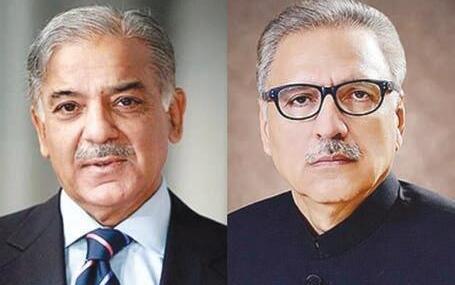
In their separate messages, Alvi and Shehbaz paid rich tributes to the valiant and heroic struggle of the workers for their fundamental rights, highlighting their pivotal role in the economic development of the country. Pakistan, like the rest of the world, will observe the International Labour Day on Monday (today) to pay rich tributes to the workers, who laid down their lives for the achievement of their rights in Chicago on May 1, 136 years ago.
The International Labour Day or May Day spreads awareness about the workers’ rights and also recognises their accomplishments. In Pakistan, special pro-
Minister confident of PML-N triumph in upcoming election
ISLAMABAD: Minister for Planning and Development Ahsan Iqbal has made bold claims that the Pakistan Muslim League-Nawaz (PMLN) will emerge victorious in the upcoming general elections. Speaking to a TV station, he emphasised that former prime minister Imran Khan’s “propaganda” against the PML-N leadership would not succeed, and that the party would win with a significant majority. Iqbal criticized Khan’s leadership, accusing him of political suicide and dissolving both parliaments. He also accused the Pakistan Tehreek-i-Insaf (PTI) leadership of focusing on “non-issues” and causing “harm” to the country instead of resolving public issues. Furthermore, Iqbal claimed that Khan had built the PTI on lies, misrepresentations, and false hopes, and that his wish for power had made him greedy and mentally unstable. He accused the PTI chairman of promoting confrontation and abusive culture while training the youth for his own interests. Finally, Iqbal vowed that the federal government would hold polls this year after completing the constitutional tenure of the current assembly. Staff RepoRt
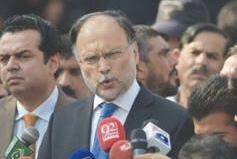
Rs2.5m recovered from rubble of Swat CTD blast
PESHAWAR: Police officials found Rs2.5 million from the rubble of the CounterTerrorism Department’s (CTD) office which suffered a ‘mysterious’ blast in the Kabal area of Khyber Pakhtunkhwa’s (K-P) scenic Swat valley. Setting a new example of honesty, SHO CTD Police Station Kabal Ikramullah handed over the money to the authorities. SHO Ikramullah said that after the blasts, the debris was removed from the scene and a packet full of money was found. “When I picked it up, it had money in it. In 2022, there was money as evidence from a case, which was the property of the police department,” he added. The SHO furthered that he is proud to be a part of the police force and lives well on the salary that he receives from the department. Lauding the honesting of SHO Ikramullah, KP Inspector General Police (IGP) Akhtar Hayat Gandapur announced an award for him, saying that his honesty has made K-P Police proud. On April 24, a huge explosion rocked the CTD building reducing it to rubble. The blast killed at least 12 people and injured 53 others, mostly policemen. Talking to the media later at night, District Police Officer Shafiullah Gandapur ruled out the possibility of a terrorist attack on the CTD station, claiming that the explosions took place after the explosives stored inside the building detonated due to a short circuit. Gandapur claimed that the bomb disposal squad could not find any evidence of a terrorist attack. Staff RepoRt
grammes to commemorate the day have been chalked out by the representatives of various labour organisations.
“We believe that workers and employers are partners in the production process and their cooperation is essential for industrial efficiency that ultimately leads to socio-economic uplift of the country,” Alvi said, in his message on the eve of May Day.
Alvi noted the labourers in the country were facing many issues like unsafe working environment, unfair labour practices, poor wages, lack of job security, harassment of women at the workplace, long working hours and arbitrary dismissal. He emphasised that the labour force was the backbone of “our economy and it is highly essential to take steps for the protection of their rights” by strictly enforcing the labour laws to discourage unfair labour practices.
“I urge workers of the country to play their role in making Pakistan economically stronger and vibrant country. I also urge upon employers to ensure the protection of the rights of labour and work for their welfare,” he said.
In a separate message, Prime Minister Shehbaz reiterated that the government was committed to ensuring that the benefits of economic progress translated into prosperity for all sections of the population, particularly the laboureres and workers.
“The day symbolises the sanctity and dignity of labour and at the same time, it is an acknowledgement of the importance of workers and labourers for being central to the economic growth of the country,” he said.
The prime minister called upon all the stakeholders to renew their pledge both at the individual and collective levels to ensure the welfare of working classes by investing in their socio-economic and social wellbeing. “Respect for hard work and recognition of the rights of workers are extremely important in the process of progress. Islam accords the sanctity to these fundamental human rights much before the establishment of labour laws,” he added.
The prime minister said that the present government was committed to improving the working and living conditions of workers and to supplement their welfare by providing
better housing, education facilities and health cover for them and their families.
Keeping in view the high inflation rates and other economic challenges, the government had increased the minimum wages of
Khar to attend UN talks in Qatar on Afghanistan crisis
ISLAMABAD Staff RepoRt
Minister of State for Foreign Affairs
Hina Rabbani Khar will be attending a meeting of special envoys on Afghanistan being held from May 1 to 2, 2023 in Doha, Qatar.
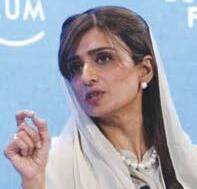
The meeting is being held under the auspices of the United Nations, the Ministry of Foreign Affairs said in a press release on Monday.
Besides attending the meeting, Khar will also hold bilateral meetings with leaders of other participating countries.
Chaired by the United Nations Secretary-General, Antonio Guterres, the meeting brings together major international and regional countries to discuss the ongoing situation in Afghanistan with a view towards constructive engagement. The Taliban government has not been invited, however, and ahead of the meeting, the question of recognition of the administration has loomed large, reported AFP.
The Minister of State for Foreign Affairs will present Pakistan’s perspective vis-à-vis Afghanistan and work on building a consensus on a way forward with international and regional partners.
Pakistan will continue to support all efforts to advance the shared objectives of a peaceful, stable, sovereign, prosperous and connected Afghanistan, the
ministry said.
In November last year, Khar led a delegation to Kabul for a one-day visit where she met with acting Afghan foreign minister Amir Khan Muttaqi. It was not clear whether security was discussed at the meeting.
“A range of bilateral issues of common interest including cooperation in education, health, trade and investment, regional connectivity, people-to-people contacts and socioeconomic projects were discussed,” the Foreign Office had said in a statement. Prior to the upcoming Doha talks, the United Nations and the United States have insisted that recognition of the Taliban government is not on the agenda.
Rights groups’ fears have been fuelled by UN Deputy Secretary-General Amina Mohammed, who said last
month that the Doha meeting could find “baby steps” that lead to a “principled recognition” of the Taliban government.
The UN said the comments were misinterpreted. No country has established formal ties with the Taliban administration and UN membership can only be decided by the UN General Assembly. Ahead of his arrival in Doha, Guterres’ office said the meeting “is intended to achieve a common understanding within the international community on how to engage with the Taliban” on women’s and girls’ rights, inclusive governance, countering terrorism and drug trafficking.
No nation has yet acknowledged the government as legitimate since the Taliban returned to power on the heels of a withdrawal from Afghanistan by US forces in 2021.
A previous Taliban government that ruled from 1996 to 2001 was only granted formal recognition by three nations — Pakistan, the United Arab Emirates and Saudi Arabia. Diplomats, NGOs and aid agencies are currently deeply divided over the issue. Some believe the international community might cajole the Taliban into reversing curbs on women’s rights by dangling the prospect of recognition. Others say even discussing it grants the Taliban some legitimacy at a time when they are squeezing women out of public life.
Another batch of evacuees reach Islamabad from Sudan
statement stated that 636 stranded Pakistanis have returned home via Jeddah on five special flights to date.
The FO added that all of the nearly one thousand Pakistanis will be evacuated from Sudan in the next 24 to 48 hours.
On April 29, 97 Pakistani nationals from Port Sudan arrived in Karachi on Saturday from Jeddah via a C-130 aircraft of the Pakistan Air Force (PAF).
workers to Rs25,000 per month, he said, adding that the government had embarked on programmes of vocational training and skills development to enable workers to get their due share in job markets.
Population of Sindh urban areas shown less under a particular conspiracy: MQM-P
KARACHI Staff RepoRt
The Muttahida Qaumi Movement-Pakistan alleged that the population of urban areas of Sindh was shown less not because of any mistake but under a particular conspiracy.
“Through the media and government institutions sources, it has been proved that population of urban Sindh is being shown less under a well-thought-out plan,” claimed MQM-P convener Dr Khalid Maqbool Siddiqui. While addressing the media persons he said that if the MQM-P had not made endeavours, the population of Karachi would have been shown 14.4 million only. “Date of census was extended because of our demand owing to which four million more people have been counted,” said the party leader. “This whole process has shown that our concerns were legitimate.” Urging the people to take part in the census, he said the date had been extended for 15 more days. He said that the government and rulers had “realised their mistake”. He pointed out that in certain rural areas of Sindh, the population had increased between 25pc to 80pc, but certain nationalists had a problem as to why the population was being counted in Karachi. “Rural Sindh is satisfied with the process of the census, but we will not make any compromise till counting of every person,” declared the MQM-P leader. He claimed that Karachi’s administration had ‘directed’ the census staff to go to their homes as their duty had ended. Speaking on the occasion, senior MQM-P leader Syed Mustafa Kamal said that the prime minister had expressed his gratitude to the MQM-P as because of their demands a ‘transparent’ census was being carried out. He said that Karachi’s population on April 7 was shown as 14.4 million, but they presented ‘evidence’ before officials and identified the mistakes.
JUI-F to boycott APC on PTI’s participation
ISLAMABAD Staff RepoRt
ISLAMABAD Staff RepoRt
A fourth batch of 93 Pakistani nationals were evacuated from Khartoum’s Port Sudan and reached Islamabad on Monday as fighting rages in the African nation following an attempted coup by militia forces.
Minister for Overseas Pakistanis and Human Resource Development
Sajjid Hussain Turi and Adviser to the Prime Minister, Amir Muqam, received the nationals at the airport.

Talking to the media on the occa-
sion, Turi said that out of 1,200 Pakistanis living in Sudan, about 500 have returned to Pakistan safely.
In his remarks, Muqam said that the government will continue its efforts till the return of all Pakistanis from the war-torn country. He added that Saudi Arabia has extended full help in the evacuation process. The adviser to the premier furthered that the government is bearing all the expenses of the evacuation of Pakistanis from Sudan to their homes in Pakistan.
Meanwhile, the Foreign Office in a
Meanwhile, the Sudan conflict showed no sign of easing as fighting could be heard in Khartoum early on Monday despite a supposed ceasefire extension and the United Nations warned of a humanitarian “breaking point” as clashes between rival military forces entered a third week.
Hundreds of people have been killed and thousands wounded since long-simmering tension between the Sudanese army and the paramilitary Rapid Support Forces (RSF) erupted into conflict on April 15.
At least 528 people have been killed and 4,599 wounded, the health ministry said. The United Nations has reported a similar number of dead but believes the real toll is much higher.
Jamiat Ulema-e-Islam-Fazl (JUI-F) has conditionally agreed to participate in the All Parties Conference organized by the Awami National Party regarding the present political turmoil. According to sources, JUI-F said that they will not attend the APC if the PTI delegation is to participate in the meeting, as the party has boycotted the PTI on every forum and will continue to do so. Hence, JUI-F will not attend any forum where the PTI is present. The Awami National Party (ANP) has called for the All Parties Conference, scheduled to happen on May 3 at a local hotel in Islamabad, the meeting will begin at 10 am. The Pakistan Tehreek-eInsaf will also participate in the conference among other parties. The Awami National Party has invited all parties to participate in the All Parties Conference, including the Pakistan Tehreek-e-Insaf and the JUi-F. The PTI has already decided to participate in the APC, and former speaker Asad Qaiser will represent the party.
Maryam says ‘conversations including decisions about country’s fate not private’
ISLAMABAD
Staff RepoRt
PML-N Chief Organiser Maryam Nawaz said on Monday that nobody had the right to tap anyone’s private conversation but clarified that a discussion during which the “country’s fate” was decided did not qualify as a private conversation.
She expressed these views while speaking about a series of audio clips, purportedly featuring the conversation of relatives of former and sitting judges of the top judiciary, at a workers’ convention in Lahore on the occasion of International Labour Day.
The said clips surfaced over the past month, with one allegedly featuring the voice of the former chief justice of Pakistan (CJP) Saqib Nisar’s son demanding a “reward” for a “job done for a PTI ticket candidate”. Another clip that Maryam referred to in her speech today purportedly featured a conversation between two
women, one of whom is said to be the mother-in-law of a top-ranking serving judge of the Supreme Court and the other the spouse of one of the PTI’s legal advisers — Khawaja Tariq Rahim — discussing a sub juice matter regarding the suo motu notice by CJP Umar Ata Bandial on the delay of elections to Punjab and Khyber Pakhtunkhwa assemblies.
When these audio clips surfaced, Maryam said, an objection was raised over tapping an individual’s private conversation.
“I am in complete favour of no one having the right to tap anyone’s private conversation. But this is not a private conversation — a conversation in which decisions regarding the country’s fate are taken is not a private conversation,” she added.
Specifically referring to the audio clip purportedly featuring the mother-in-law of an SC judge and Rahim’s wife, she said, “They were not discussing the recipe for gajar ka halwa [carrot pudding]. Instead,
they were detailing a conspiracy [to] bring Imran [Khan] back to power.
“And since you don’t have any answer for these audio clips and big revelations made in them, you are now questioning why the recordings were released. “But you will have to answer to the nation.”
Earlier in her address, Maryam railed against PTI Chairman Imran Khan, labelling him as a “terrorist” and a “hurdle in the way of the country’s development”. Decrying the country’s worsening economy, she said that it was not just Imran, but an “entire gang” led by the PTI chief that was responsible for the dire situation the country was facing today.
This “gang”, she alleged, included the “most corrupt personalities of Pakistan”, naming retired army officials and former and sitting judges as its members.
Maryam also spoke about Imran’s long march and Jail Bharo Tehreek following his ouster as the prime minister, alleging that
PTI CHIEF SCARED TO FACE MASSES DUE TO MISDEEDS OF HIS GOVT: MARRIYUM
ISLAMABAD: Federal Minister for Information and Broadcasting Marriyum
Aurangzeb has said that Pakistan Tehreek-e-Insaf (PTI) Chairman Imran Khan is scared to face masses due to misdeeds of his government. Reacting to PTI rally on the occasion of Labour Day, she tweeted, “Imran Khan will never face masses as he knows it was his government tenure which rendered six million people jobless and pushed 20 million below the poverty line.” Marriyum Aurangzeb said, “Foreign Funded Sazishi Fitna is himself addressing from the car and using canister for his security, but on the other hand, his workers are facing heat while walking in hot weather.” The information minister said that Imran Khan could and would not come out of his car as he knew what the labourers had faced during his government’s tenure. Staff RepoRt
the PTI chief had “conspired” to dissolve the assemblies and stop the appointment of the new army chief. “But when all of these tactics failed, a new judicial establishment — with some new and some old faces — has stepped in to save him,” she claimed,
adding that it was an “evil nexus”. Continuing her tirade, the PML-N leader further alleged that the PTI wanted elections in time for their “facilitators in the Supreme Court” to be able to help them win the contest.
77 ATTACKS CLAIM 120 LIVES OF POLICEMEN IN KP: REPORT
PESHAWAR Staff RepoRt
ACCORDING to a police report on Monday, a staggering 120 members of the force have been killed and 333 others injured in Khyber Pakhtunkhwa in the last four months due to 77 militant attacks targeting law enforcement personnel.
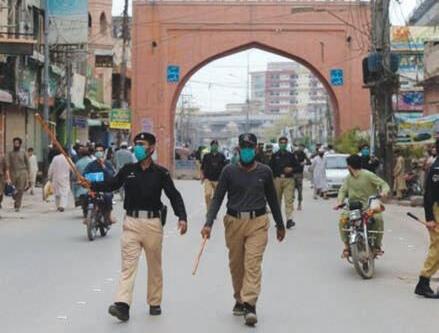
Bannu suffered the most attacks with 24, followed by Dera Ismail Khan with 23 and Peshawar with 15. The highest number of fatalities occurred in Peshawar, where 88 police officers were killed in action. Additionally, 12 officers were killed in Malakand, 11 in Bannu, and three in Dera Ismail Khan during this period.
The Tehreek-i-Taliban Pakistan (TTP) is the largest and deadliest militant umbrella organisation active in Pakistan.
Formed in 2007 under Baitullah Mehsud, who was angered by Pakistan’s cooperation with Washington in the war on ter-
Country’s exports adversely affected of changes made in 6 months: Farrukh
ISLAMABAD: Staff RepoRt
Secretary Information Pakistan Tehreek-eInsaf (PTI) Farrukh Habib has said that four major changes have been made for Pakistani exporters in last six months which were adversely affecting the country’s exports. In a statement issued here on Monday, he said that Working Capital Ratio which was 3 percent is now 18 percent, electricity per unit price which was 20 rupees is not 35 rupees plus GST, LNG for exporters of Punjab which was 9 dollar is now 13 dollars while FBR was delaying refunds. Farrukh Habib was of the view that export of Pakistani products was adversely affected at the time when it needed dollar under any circumstances.
Pakistan showcases its rich tourism potential in world leading travel show
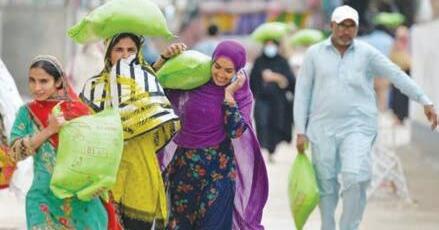
ISLAMABAD Staff RepoRt
A 25-member delegation of Pakistan under the leadership of Awan Chaudhry, Advisor to Prime Minister on Tourism and Sports is participating in ATM Dubai 2023 from 1st to 4th May to showcase the rich tourism potential of the country. Pakistan Tourism Development Corporation (PTDC) has put a nice pavilion along with partner organizations such as TDAP, Pearl Continental Hotels, Hashoo Group, Legend Hotels and Resorts, ComfiTrav Tourism, Meezab Group, Waljis Travels, Zeb Travels, Eventica, Black Glacier Tours and College of Tourism and Hotel Management. Mr. Awn Chaudhry, Advisor to Prime Minister on Tourism and Sports and Mr. Faisal Niaz Tirmizi, Ambassador of Pakistan in UAE jointly inaugurated Pakistan’s Pavilion at ATM 2023, Dubai.
Speaking on the occasion, Advisor to Prime Minister on Tourism and Sports – Awn Chahdhry applauded the efforts of PTDC for the promotion of tourism in Pakistan and he encouraged the participation of private sector in ATM Dubai 2023 to enhance business to business linages with the counterpart of Middle East and other countries increase the flow of foreign tourists and investors to Pakistan. He also appreciated the support Pakistan Embassy in UAE and Trade Development Authority of Pakistan (TDAP) for providing support to Pakistani exhibitors to participate in ATM 2023. Ambassador of Pakistan to UAE – Faisal Niaz Tirmizi at the inauguration ceremony stated that participation of Pakistan in Arabian Travel Market ATM after a long gap is very significant and it will help to promote inbound tourism in Pakistan and also create soft image of Pakistan at global level. It will provide more business-related opportunities for the private sector stakeholders and bring in foreign investment in Pakistan from the Middle East. Aftab Rana, Managing Director of PTDC informed that Pakistan is blessed with breath-taking natural beauty, rich culture and heritage and great diversity of landscape offering an un-matched tourism potential.
90 percent work of the Sukki Kinari hydro project completed
ISLAMABAD
Staff RepoRt
rorism, TTP is a subset of different outlawed groups who agreed to work together against Pakistan and support the Afghan Taliban, who were fighting US and NATO forces.
Islamabad has accused the organisation of operating from neighbouring Afghanistan, and says the group’s attacks in Pakistan increased after the Afghan Taliban took control of Kabul in August 2021.
Despite Pakistan’s demand for the Afghan Taliban to remove the TTP or limit their movements, the Afghan Taliban urged Pakistan to negotiate a peace deal with the TTP instead. Pakistan’s leaders and security analysts believe the talks only made the insurgents more powerful. The negotiations failed in November 2022.
Earlier on Monday, Section 144 was enforced in Peshawar for three days due to security concerns. The order prohibits gatherings of five or more people during this period. The deputy commissioner of Peshawar issued the notification, highlighting the critical nature of the security situation.
Official raises concerns over ‘unlawful’ appointments in ECP
ISLAMABAD monitoRinG RepoRt
Faisalabad District Election Commis-

sioner (DEC), Irfan Kausar, has brought to light suspected irregularities in the appointment of key officials within the Election Commission of Pakistan (ECP). Kausar has taken the issue up with the provincial commissioner and has also penned a letter to President Arif Alvi, drawing attention to these appointments which he claims were made in violation of service rules. Kausar, who made headlines last year for rejecting Pakistan Tehreek-i-Insaf (PTI) chairman Imran Khan’s nomination papers for NA-108 (Faisalabad) by-polls, has communicated his intentions to the commission’s secretary to follow in the footsteps of regional election commissioner of Kohat, Adnan Bashir.
Bashir had filed a reference with the Supreme Judicial Council (SJC) a few months ago, targeting the chief election commissioner. In the letters he has penned, Kausar has requested access to several documents, including a statement of assets and liabilities submitted by the Chief Election
Commissioner Sikandar Sultan Raja. Kausar has also argued that Article 221 of the Constitution is relevant to the matter of parliamentary oversight regarding employment in the ECP, given that the original article states, “until Parliament by law otherwise provides, the commissioner may, with the approval of the president, make rules providing for the appointment by the commissioner of officers and servants to be employed in connection with the functions of the commissioner or an Election Commission and for their terms and conditions of employment.”
He contends that the Constitution requires the parliament to frame a law, as no such legislation is currently in place. Kausar has cited the fact that service rules were established by the then chief election commissioner in 1989 with presidential approval, which remained in force until the promulgation of the 18th Amendment. The official highlighted that in the past, only serving Pakistan Administrative Service (PAS) officers were appointed to the ECP, and that too only for the position of secretary. However, in the present day, the secretaries rely on the strength of the ECP to further
enhance its capacity. The above-referred judgment and report mainly focused on policy areas within the commission. As a result, new wings were created, and the organisational hierarchy was weakened. Kausar, referring to appointments made for administrative posts, stated that even if a contentious framework of 1989 rules is still being followed, its validity has expired after the 22nd Amendment.
The official alleged that the commissioner is running the administrative affairs of the ECP using outdated rules from 1989 and amending them without obtaining mandatory approval from the president. Kausar claimed the commissioner is the sole administrative authority without any oversight from the commission due to the absence of service rules. The official also alleged that mid-career ECP cadre officers are being promoted arbitrarily. Therefore, Kausar has urged the president to direct the relevant authorities to draft ECP service rules or for the chairman of the Senate and the National Assembly speaker to instruct the relevant committees to consider the matter for legislation.
9 Afghans held during combing operation
KARACHI Staff RepoRt
Police, with the assistance of Rangers, arrested nine Afghans during a combing operation in the SITE Super Highway area during the early hours of Sunday.
Officials said the operation was supervised by Sub-Divisional Police Officer Sohail Faiz of the Sohrab Goth Division, while the action lasted around six hours. Officials of intelligence agencies and female searchers also participated in the operation. The officials searched the houses that were under suspicion, and they also checked the documents of the people residing there, especially their national identity cards.
During the operation, the officials detained some people, including Afghans who could not immediately show any documents regarding their residency in Pakistan. Police suspect they are living illegally without travel documents. If they provide proof of their stay in Pakistan, they will be released, otherwise they will face legal action.
Officials said that during interrogation, the arrested Afghans admitted illegally crossing the border into Pakistan and settling here. Police have arrested nine Afghans and registered case No. 496/23 against them under sections 3(2) and 14C of the Foreigners Act. The detainees include Allah Dad, Azizullah, Gul Mir Khan, Syed Mir, Khuda Noor and Allah Noor.
Around 90 percent work of the Sukki Kinari hydropower project has been completed while the installation of the heavy transmission line is in progress at a rapid pace. According to a report published by Gwadar Pro, the total gross installed capacity of Sukki Kinari Project is 873.508-MW with the supply of 4 sets of impulse turbines. SK project is a foreign direct investment project by Suki Kinari Hydro (Private) Limited. It is a joint venture by White Crystal Limited, Saudi Arabia (58%), Eden Inc. Behad, Malaysia (20%) and China Gezhouba Group Company Limited (CGGC) (20%). Meanwhile, Chinese engineers have successfully installed a Shaft pan in Sukki Kinari 884 megawatts hydropower project which would provide a base for water preservation and power generation. The run-of-river facility is one of the early-harvest clean energy projects under the China-Pakistan Economic Corridor (CPEC). Gezhouba Group, China is implementing the project at around USD 2 billion. The pan shaft has an important role in generating electricity by converting energy from an outflow between the upstream water and downstream water. The system comprises a vertical shaft, the shaft crown of which forms an inlet level that is essentially parallel to the bottom and which below the water level of the upper water runs, said a statement released here. Under Construction Suki Kinari Hydropower Project-884MW Shaft 234m deep double chamber surge shaft is being constructed to neutralize the hammering effect of water due to the sudden shutdown of generating units last year.
Sugar price hike has nothing to do with exports, says PSMA
CONTINUED FROM BACK PAGE
All these elements are factors in the increase of cost of production of sugar up to Rs 130 per kilogram. “Despite all the challenges faced by the sugar industry the price of sugar has increased much less in comparison to food inflation in the country which has gone up by 47 percent in the last one year. It might also be reiterated that the sugar industry of Pakistan set up several discounted sugar stalls much below its cost of production in different cities of the country during the holy month of Ramadan. This step of the sugar industry was also acknowledged by government circles. If the government would have timely allowed export of one million tons of sugar it would have ultimately given a positive message to the farmer who would have timely increased plantation and invested more in their fields to increase yield,” PSMA stated. According to the association, this would allow the country to sow more sugarcane, which could have taken the country to a position of exporting surplus sugar of two billion dollars’ worth. “The sugar industry is responsible and one of the oldest entities of Pakistan and pays more than Rs.100 billion to the government in the form of different taxes. We condemn such allegations on a responsible industry which is highly deplorable and against facts. Clubbing the hike in sugar prices with the export of sugar is totally unjustifiable and an attempt to tarnish the image of a responsible industry of Pakistan, which is totally against the factual position,” PSMA concluded.
Free flour scheme provides relief to over 23 million families in Punjab and KP: data
ISLAMABAD Staff RepoRt
The government’s free wheat flour scheme, known as the Ramadan Package, benefitted over 23 million families in Punjab, Khyber Pakhtunkhwa, and the capital, according to government statistics.
The scheme was announced by Prime Minister Shehbaz Sharif weeks before the holy month, with the aim of providing relief to inflation-stricken people.
The distribution of free flour was carried out through 8,500 utility stores and around 20,000 flour distribution points set up across Punjab.
In Khyber Pakhtunkhwa, around 5.23 million families benefitted from the government’s welfare scheme, achieving over 90 percent of the set target.
The prime minister personally monitored the execution of the unprecedented
free flour scheme and made unannounced visits to the flour distribution points across the province. To ensure transparency and proper facilitation of the beneficiaries, special information desks were set up to guide the people regarding their eligibility as well as the distribution process.
The prime minister also interacted with the people, listened to their issues, and directed for their immediate redressal.
The registered families were entitled to get 30 kilograms of flour in a month. In case of any complaint, the people were asked to contact the toll-free helpline 0800-05590. However, keeping in view the increasing demand, the prime minister later announced that people even those not registered with the Benazir Income Support Programme (BISP) would also be eligible to avail of the scheme through specified desks at the distribution points. The initiative was widely hailed as the
largest package in the country’s history, and it was also evidenced by the smile on the faces of the beneficiaries as they received three flour bags. Minister for Information and Broad-
casting Marriyum Aurangzeb appreciated the efforts of government officials to ensure transparency in the distribution of free flour, and she said the prime minister personally monitored the execution of the scheme.
Over 5000 professors frustrated with lack of clear policy and framework by HEC
ISLAMABAD Ghulam abbaS
As the Higher Education Commission (HEC) has failed to address the major demand of over 5000 professors (faculty members of public universities under Tenure Track System (TTS), the university teachers are now agin planning to gather in Islamabad to protest in favour of their demand this month.
According to a statement of All Pakistan Tenure Track Association (APTTA), a leading association of faculty members teaching under TTS, more than 5,000 doctors (Assistant professors, associate professors and professors) appointed under the
TTS are frustrated with the lack of seriousness among high-ranking officials at HEC, who seem to have no regular scheme of action in place for the system.
The TTS was introduced by HEC to improve the quality of higher education in Pakistan. Under this system, faculty members are appointed on a contract basis for a fixed period of time, and their promotion and salary increments depend on their performance during that period. However, due to the absence of a clear policy and framework for the TTS, faculty members are at the mercy of HEC officials, who often fail to deliver on their promises.
One of the major issues faced by TTS faculty members is the lack of a proper
salary structure. Due to inflation, TTS salaries have been squeezed, and despite the current budgetary increase in salaries for government employees, no framework has been made so far for TTS faculty members. This means that they are likely to be deprived of any salary increase due to the lack of a concrete policy by HEC.
In addition to salary issues, faculty members under TTS are also facing other academic and technical problems. One of these is the Higher Education Journal Recognition System (HJRS), which is used to evaluate the quality of research publications. The HJRS is essential for the career progression of TTS faculty members, but due to the lack of a clear policy by HEC,
they are facing chronic issues related to its implementation. The APTTA has been vocal about the plight of TTS faculty members. APTTA has demanded that HEC take responsibility and treat TTS as its financial liability because HEC appointed these 5,000 PhDs. Recently, the federal government has issued a sum of Rs. 7 billion to HEC, and APTTA has urged HEC to use this money to concretize their notification of a 35% salary gap between faculty members serving under TTS and the Basic Pay Scale (BPS).
Furthermore, in a recent meeting with APTTA’s management, HEC officials assured them that TTS statutes version-3 will be introduced to address the issues faced by
TTS faculty members. APTTA has demanded that HEC publicize version-3 of TTS statutes along with the compliance of HEC issued notifications regarding maintaining 35% salary gap between faculty members serving under TTS and the Basic Pay Scale (BPS). APTTA has also called for pension, in-service death benefits for bereaved families, and launching of a new HJRS to be addressed by HEC.
If HEC fails to address the concerns of TTS faculty members, APTTA has warned that protests and sit-ins will be staged in front of HEC. This is a crucial time for HEC to take these issues seriously and work towards improving the state of higher education in Pakistan.
KP crumbling government hospitals
Ignored, underfunded, unresolved
IT would appear that Khyber Pakhtunkhwa’s public sector hospitals are facing a bit of a problem.
Consider the leading hospital of the province, the historical Lady Reading Hospital. It is in desperate need, as per reports, of Rs 3 billion. A total of Rs 5 billion due to the hospital remains frozen.
But it isn’t just the LRH. The Medical Teaching Institutes of the province, and the facilities operating under them, have all been reporting a stark shortage of funds.
In the debate that followed the PML(N)-proposed and PTI-planned-and-executed Sehet Card system, the public health individuals opposed to the same had been cautioning that the scheme might seem beguiling simple but will ultimately be at the expense of the province’s public hospitals, whose footfall vastly outstrips that of private hospitals.
Not giving enough funds here and splurging there sets up the former to fail even more, strengthening the case for funding the latter, in a macabre feedback loop. Well curated anecdotes by paid PR teams and supporters about this person being treated or that, seem to deny the fact that far more people have been treated at government hospitals with the funds allocated to the public health infrastructure.
And it is not as if the private hospitals have been performing spectacularly with the government funds given to it by the Sehet Card Scheme. Reports of grift are abound. Like the recent reported case in Dir, where there seems to have been an “epidemic” of appendicitis, an occurrence not many are aware of. In this, 1829 operations removing appendices were performed during 2022 at a private hospital allegedly owned by a senior doctor in a government hospital. Out of these, 744 operations were performed by one doctor alone.
All this, by no way, means to blanket-condemn the Sehet Card Scheme but merely to encourage debate on it so that a holistic approach could be taken. With the Sehet Card on one hand, and former finance minister Miftah Ismail’s advocacy for a voucher system for education on the other, neoliberal solutions to problems meant to be solved, hands-on, by the state, are being peddled and lapped up enthusiastically by an eager media without any passing-of-the-mic to opponents of such ideas.
Founding EditorMissing Ramadan already


And it has only been a few days
IT has not yet been a fortnight since Ramadan ended but I am missing it already. Of course, the month is unsurpassed in terms of its atmosphere, its spirit, and its opportunities. The larger blessings of the fasting month are too well-known to need a mention. But even the small things about the season tend to make one nostalgic as soon as it passes: the dates, fruit chaats, the Bringal pakoras, the dahi bhallas… For some mysterious reason, these (and other) things just do not taste the same during any other part of the year.
Also, the little things at the mosque feel very different in Ramadan. For example, the ruckus raised by some irate – albeit well-meaning and rather cute – senior citizen who is offended by someone (in his view) transgressing on his (or somebody else’s) prayer space. Of course, such incidents can occur around the year; but, what with the heightened sense of duty and piety engendered by Ramadan, no fasting season is quite complete without them. I do not know about others, but I tend to take such things in a much more charitable and philanthropic spirit during Ramadan than otherwise.
During the Taraweeh (as opposed to the mandatory prayers) I have this habit of having a Quran open in front of me while the Qari recites its verses. (Lately the mobile phone has taken the place of the mushaf.) It makes for improved understanding on my part since I feel I can concentrate much more than if I were only listening. I make it a point to stand on the extreme left or right of a row so that I can use a window sill to place the phone during the other parts of the prayer. Many people are puzzled by this practice; and some are inquisitive enough to ask, usually in a very civil and polite manner. But there are exceptions; for example, one day a youngster kept motioning to me after every two raka’at to close the gap between him and me (the gap had opened up on account of some worshippers having left after praying eight raka’at) – an instruction I could not comply with on account of my window-sill constraint. The young man looked none-too-pleased. What was interesting was that each time after motioning me to come closer, he proceeded to continue resting till the Qari finished the recitation and proceeded to the ruku at which point he hurried to get up on his feet and join the prayer. Somehow, in Ramadan even things like this are not without a certain amount of charm; such is the spirit of the fasting month.
This year, there were one or two firsts too. One day, near the end of the month, smack in the middle of the fifth or sixth rak’ah of Taraweeh, I felt a tap on my shoulder. I attributed it to somebody having accidentally bumped into me. Soon however, I felt the tap again, and this time there was no doubt that my urgent attention was required. Alarmed, I turned my head to see a man pointing to a chair placed in the previous row and asking if he could take it. I nodded my head and resumed my prayer, thinking that the whole thing was rather odd, because given the distance there was no way anybody could have imagined I was using the chair. Little did I know that I will soon be forced to change my opinion about the man for the better.
For the very next day I was told what had happened, apparently at almost exactly the same time, in another mosque. The incident, which featured an old lady (a relative), in comparison shed a very favourable light on my own chair-incident. For, however strange the circumstances, the man had at least made it a point to ask my permission before taking the chair. The poor old lady had sadly not been extended that courtesy. She had been using a chair for ruku and sujood; but while she stood in qayaam, another lady had thought it fit to remove it from behind her without any warning whatsoever; so that (under the impression that the chair was still where she had left it some moments ago) she collapsed on the floor with a thud. Thankfully, the scans showed that she had suffered no serious damage.
One day, when I happened to be in a different part of the town, I prayed my Taraweeh in the local mosque there. On my immediate right was a lad of barely twenty, who, without any ado, pointed to my trousers and asked me to pull them up, to a level above my ankles. He did not know me from Adam, and for all he knew that may have been my first day at any mosque. I could not help thinking that even if (for the sake of argument) it is granted that the trousers-above-ankles
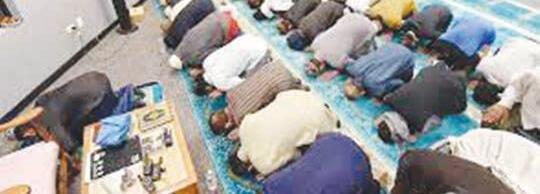
Regulating Suo Moto powers
If continued to be practiced as it currently is, there will be no end to controversy and criticism
Fundamental Rights, involving public interest, without having to observe the conditionalities and formalities, stipulated in Article 199.
THE exercise of suo moto powers by the Chief Justice of the Supreme Court is the subject of intense debate and disputation amongst the politicians, lawyers and journalists/analysts. The print and electronic media is awash with comments/analysis of the exercise of such power by the Court in the recent past. Two verdicts, in particular, are the subject of discourse: One, the order of 7th April 2022 on restoration of the National Assembly, dissolved by Mr Imran Khan. The order further forced him to face the no confidence motion, wherein he was removed. Now a year later, the Court again exercised such power and ordered the Election Commission of Pakistan to stick to the constitutional deadline for holding elections, and fixed 14th May 2023 for the poll of the Provincial Assembly of the Punjab. Admittedly, both the cases – indeed political issues - arose due to disregard for democratic norms/principles and blatant violation of the Constitution. The Court had to intervene, because the Constitution entrusts it with onerous responsibility to “preserve, protect and defend the Constitution”.
The dominant political forces – PDM and PTI – have diametrically opposite stands on the verdicts: the PDM applauded the verdict on restoration of National Assembly but is critical of the order for holding elections, whereas the PTI stance is exactly the opposite! Obviously, the reaction is in line with the declared political objectives of each: the PDM - Government in power –resisting and PTI - Opposition Party - insisting on holding urgent elections. The issue being political, the rulings - through strictly based on law and the Constitution – are made controversial.
There is no doubt or misgiving as to the exercise of suo moto powers by the Court. It is conferred by Article 184 (3) of the Constitution, saying, “Without prejudice to the provisions of Article 199, the Supreme Court shall, if it considers that a question of public importance with reference to the enforcement of any of the Fundamental Rights conferred by Chapter I and II is involved, have the power to make an order of the nature mentioned in the said Article”. The Supreme Court in the case of Benazir Bhutto v Federation (PLD 1988 SC 416) had the occasion to interpret this provision. The Court held that it could take up incidents of violation of
Inherent in this Article is the power to carry out Public Interest Litigation for the enforcement of Fundamental Rights of the poor and needy people and weak, vulnerable and marginalized sections of the society. They have to be assisted on account of their low social/economic status, so as to avail the benefits of law. In such situations, the Court can assume jurisdiction suo moto (on its own motion) and conduct proceedings, without filing a formal petition, paying court fee and engaging a counsel. In this regard, the Court has to its credit, taking up complaints and granting relief in the form of damages/compensations, restoring rights/entitlements, stopping illegalities/irregularities, checking corruption, preventing pollution and preserving the environment, providing access to justice, education, health facilities and issuing directions for legislative enactments to ban the bonded labour, illegal organ transplants and protect the places of worship (Churches) of the minority community, etc.
The current controversy is however limited as to the mode/manner of taking a suo moto action, as to whether it should be at the sole discretion of the Chief Justice or also involve other judges of the Court? The PDM Government sought to regulate this prerogative of the Chief Justice through legislative enactment by constituting a 3Member Committee, comprising the Chief Justice and two most senior judges of the Court, for the purpose. But it was done at the wrong time and in a wrong manner; and the measure rightfully stayed by the Court, it being an intrusion into the internal working (practice and procedure) of the Court, which is prohibited under Article 191 of the Constitution.
Since the system of taking up cases suo moto is not institutionalized, it is largely dependent on the choice/option as well as dynamism/activism of the Chief Justice. Thus, Chief Justice Afzal Zullah (1990-93) began taking up complaints after he reduced the Court pendency to 2000 cases. Similarly, Chief Justice Iftikhar Chaudhry (2005-13) brought down the pendency to 10,000 (in early 2006) and then opened Human Rights Cell for processing public complaints. On average, 250-300 letters/applications were daily received. 95% of the grievances were redressed at the administrative level, when reports were called from the head of the department/agency; who will grant relief and the case will be closed. This way, hundreds of thousands of complainants got relief. Hardly 5% cases went for trial.
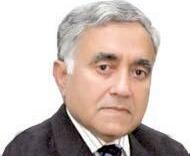
Not being fully institutionalized, currently, the Chief Justice initiates the suo moto action and fixes the matter in his own bench for hearing. This is unfair, given the fact that the issue of admissibility – a major hurdle - is yet to be crossed. The Article does not permit each and every case of violation of Fundamental Rights to be entertained by the Supreme Court. The jurisdiction is concurrent, alongside the High Court, therefore, in the interest of justice, the lower forum better entertain the case, so appeal may lie to the Supreme Court. Otherwise, the Supreme Court has to give a finding that it is taking up the case, in preference to the High Court; even though the right of appeal is denied to the aggrieved party. Thereafter, it should further hold that the issue is of public importance and expeditious disposal is warranted.
The Bar has been constantly raising voice for regulating this suo moto exercise of authority. Of late, few judges have also raised the point, arguing that it is the power of the Court. The Supreme Court Rules 1980 (Rules) deals with the manner of filing under Article 184 (3). Order XXV provides for their scrutiny and placement before a bench for disposal. The Rules are however very sketchy, and silent about the suo moto action. This is a gap, which needs to be filled by suitable amendment. There are several ways to do it. But in line with the present scheme of filing and processing cases, the amendment may authorize the Registrar to receive letters, complaints, and after scrutiny, place it before a bench. Similarly, a judge may also initiate a suo moto action and then refer the matter to the Registrar for placement before a bench, of which he (the judge initiating the case) is not a member.
Besides, to avoid its abuse/misuse, certain guidelines be given, specifying the type/category of cases to be entertained. Only persons aggrieved or having sufficient interest in the matter or genuine public-spirited individuals, acting pro bono, may file cases/complaints. Petitions filed by persons motivated by personal gain/profit, political motivations or oblique consideration, should be rejected. Similarly, cases filed by pseudo public-spirited individuals for settling scores or seeking publicity, indulging in wild/reckless allegations and stigmatizing opponents, should be discouraged through imposition of cost/penalty to prevent abuse of the process and guard against false/frivolous litigation.
The author served as Registrar, Supreme Court and Secretary, Law & Justice Commission of Pakistan
is a religious injunction (a big if, to say the least), that kind of behaviour was probably the exact opposite of the prudence the Quran enjoins on individuals who take it upon themselves to serve and communicate Islam. I ignored the lad (of course), but such is the spirit of Ramadan that I remember being rather amused, and not irritated as I might have been on other occasions.
One day, our Qari lost track of the count of Taraweeh rak’ah, the result being that we prayed two raka’at more than usual. The whispers around the mosque suggested that many were not too happy with the ‘lapse’. Especially inconsolable was an elderly man who kept registering his protest till after the witr prayer. The same uncompromising (although I am sure well-intentioned) spirit was at play when a meticulous and conscientious worshipper objected to the Assistant-Imam’s pronouncement of the iqamah for Asr prayer on ‘grounds’ that the latter was not properly aligned with the other worshippers in the first row. Imam sahab had to assure him that that was quite all right. I used to believe that I had heard the whole gamut of objections on other people’s religious practices. How wrong I was! Well, one learns every day. In our local mosque there is provision for ladies to attend the Taraweeh prayer in the basement. On the third night just after the Isha prayer, Imam sahab hesitantly announced that there were complaints about some women who kept talking to each other at the back instead of joining others in prayer, which distracted the other ladies. Imam sahab politely asked the concerned ladies to desist; but with the air of a man who knows that that is easier said than done. On the gents’ floor, I saw many an amused face upon hearing the appeal. Yet another precious memory of last Ramadan! Au revoir, Ramadan!
The author is a connoisseur of music, literature, and food (but not drinks). He can be reached at www.facebook.com/hasanaftabsaeed

Editor’s mail
Send

Don’t hide; lead
IT seems Pakistan has become a republic where anyone having a group of, say, a thousand individuals with aggressive and violent tendencies can be above the law. The recent riots in Lahore depict the true picture of a banana republic. No one is above the law. One should face the criminal cases through legal ways and not by blocking roads or calling one’s supporters to fight the state machinery.
Leaders should lead from the front, not by sitting and hiding at home and refusing to face the courts. One should follow the example of Nelson Mandela and other such national leaders who faced imprisonment for more than two decades, but never asked their supporters to save them from the law. In the past, political leaders used to give life lessons about everyone being equal before the law by setting personal examples. They offered arrest even if they were implicated in a false case. But we have leaders who love to hold the entire justice system as hostage. Such a situation has brought the country to the brink of anarchy and civil war. Never before the country has witnessed such cowards posing as leaders.
Breaking the law and then getting away with it has been the hallmark of the political elite. The law of the land apparently is applicable only to the poor and the middle classes of the country. This is the unfortunate and undeniable reality of life in Pakistan.
MIR BEWRAGH KHAN RIND SUKKURTribal feuds out to tear social fabric
IN a chilling and gut-wrenching incident, a professor, who had earned his doctorate from France, was shot dead in Kandhkot in an alleged feud over somebody’s so-called ‘honour’. Dr Muhammad Ajmal Sawand was brutally murdered by members of the Sundrani clan while he was en route to Sukkur where he was serving as a deputy director at a leading academic institution.
The professor’s death is a huge loss to the country and academia. In one of the several videos that are available online, the professor could be seen telling the audience before him that he was earning Rs30,000 for an hour in France, but he decided to return home to teach his own people. Alas! His dream to contribute to the country and teach its people died an untimely and tragic death. While the security and economic situation of the country has led people to search for greener pastures, Dr Ajmal’s decision to return to the motherland was a testimony to his commitment to the country of his birth. As per the figures kept by the Bureau of Emigration and Overseas Employment, 832,339 Pakistanis went overseas for work in 2022 alone. Dr Ajmal was a rarity in this regard.
But what did his own people do to him; what did his country do to him? They failed him. With his death the reason has failed; the conscience has been asphyxiated; the hope for a better future and a civilised nation has been dimmed. The abominable practice of feuds between and among clans over ‘honour’ or on any other pretext is a sign of a repressive, regressive and inhumane society. It has exacted a heavy toll on our society and needs to stop immediately.
The prevalence of this thuggery and culture of impunity enjoyed by the perpetrators of such heinous crimes fly in the face of tall claims and decisions by the provincial government to rid the region of anarchy and bring some semblance of normalcy. Such incidents reveal how tenuous the control of the government and its machinery is over such matters and such areas. It beggars belief that a government that wastes no time in unleashing force on peaceful protesters, be they teachers, health workers, students, or other human rights activists, is struggling to contain these violent elements that are hellbent on destroying the very fabric of our society. It is high time the government moved beyond mere condemnations and rigorously implemented measures aimed at ensuring a better, secure and safer region with access to education, and zero tolerance for the obscurantist forces. Also, the perpetrators of this horrific crime must be brought to the book.
Also, the little things at the mosque feel very different in Ramadan. For example, the ruckus raised by some irate – albeit wellmeaning and rather cute – senior citizen who is offended by someone (in his view) transgressing on his (or somebody elseÊs) prayer space
Dedicated to the legacy of late Hameed Nizami
Arif Nizami (Late)
Not being fully institutionalized, currently, the Chief Justice initiates the suo moto action and fixes the matter in his own bench for hearing.
An occupying power cannot be a beacon of democracy COMMENT 05
traying them as being an irredeemable foe. Depicting the Palestinians as such was deliberate, albeit every Israeli government knew only too well that the Palestinians will never be in a position to pose a credible existential threat against their country.
Nevertheless, they continue to promote their denunciation of the Palestinians for public consumption, knowing that they have been nurturing hatred and cultivating hostility against the Palestinians, which now defines the Israeli-Palestinian relationship. Acrimonious public narratives that set one people against another obviously fosters conflict rather than cooperation, which is essential to a functioning democracy.
ing, leaving the Palestinians with little left to lose. The Israelis helped to create this explosive environment. Now it is only a matter of time when the next explosion will happen. This is not how democracy works and the Israelis must sooner than later face this bitter reality.
with their lives. And of course, leave it to the settlers to do their own cruel deeds by taking revenge against any Palestinian—guilty or innocent is of no concern to them. The settlers’ pogrom against the Palestinian village of Huwara offers a chilling example of their brutality. A day or two later everything is forgotten by Israeli Jews, but the vicious cycle continues. This is Israeli-style democracy.
Icouldn’t applaud and admire enough the hundreds of thousands of Israelis who protested for 17 consecutive weeks against the Netanyahu government’s scheme to subvert Israel’s judiciary under the pretense of necessary ‘reforms.’ In reality, Netanyahu and his Justice Minister Levin were bent on subordinating Israel’s Supreme Court to the whims of a simple majority in the Knesset, and the appointment of judges to a committee with an increased number of representatives handpicked by his government. Should such legislations come to pass, it will be tantamount to giving the government unlimited power without any checks and balances, destroying the very foundation of democracy on which the country was founded and in which Israelis take special pride.
The irony here though is that whereas the majority of Israelis believe that their country is a democracy and fervently poured into the streets to preserve it, and often refer to it as the only democracy in the Middle East, what escapes them is that no country can claim to be a democracy and be an occupying power at the same time. Indeed, applying two different sets of laws and rules, one that governs Israeli citizens (including Israeli settlers in the West Bank) that accords them protection and social, economic, and political freedoms, versus the military rules that govern the Palestinians under occupation, depriving them of their basic human rights, is totally inconsistent with democracy by any definition.
The question is, why have the Israelis grown so comfortably numb to the ruthless occupation and have not once protested against its continuation, as if it were a normal state of being that has no effect or repercussions on either the occupier or the occupied?
PUBLIC ACRIMONY: To begin with, successive Israeli governments, especially since the second Intifada in 2000, during which conservative governments were largely in power, have systematically engaged in acrimonious public narratives against the Palestinians, por-
LACK OF AWARENESS: Most Israelis have very little firsthand knowledge about the ruthlessness of the occupation and the pain and suffering the Palestinians are enduring day-in and day-out. If the Israelis could witness the night raids that terrify young and old, arbitrary incarcerations, demolition of houses, forced evictions, confiscation of private land, uprooting of trees, humiliating checkpoints, vandalism by settlers, and trigger-happy soldiers who shoot to kill, they would certainly have a better grasp as to why the occupation is not and cannot be sustainable, but is contrary to every human value they hold so high.
Had even some of the hundreds of thousands of Israelis who stood tall to fight for the preservation of their democracy experienced for one day what the Palestinians endure every day under occupation, they would realize how broken Israel’s democracy is and how shameful it is to demand that they are entitled to live in a free society while the Palestinians live in servitude.
LIVING WITH THE STATUS QUO: After 56 years of occupation, a mounting number of Israelis have given up on finding a solution to the conflict with the Palestinians and have come to accept the status quo as a permanent state of affairs with which they comfortably live. Successive right-wing governments led by Netanyahu openly state that there will be no Palestinian state under their watch, preferring to maintain the status quo regardless of the frequent flareups of violence, which Israel learned how to control at an acceptable cost.
The notion that the status quo can be sustained indefinitely is completely misguided, as there is absolutely no sign and no reason to believe that the Palestinians will ever give up their right to establish a state of their own. In recent years the oppressive occupation has become increasingly unbearable, resentment against and hatred of the Israelis is piercing, violence targeting Israelis is escalating, and hopelessness and despair is all-consum-
Has France really gone to hell?
trente glorieuses (1945 to 1975), when postwar France regained confidence by helping to pioneer first Concorde, then the TGV, and then in the early 1980s the proto-internet (the Minitel). After all, France devotes a higher percentage of its GDP to redistributing market inequalities than any of its wealthy peers – it even has an unparalleled income support and equalisation scheme for performing artists. As a result, it’s near the top globally for life expectancy, with its workers retiring earlier, on average, than anyone else in Europe (yes, even after the widely opposed reform), and with the lowest rate of poverty among older people.
THE PALESTINIANS’ AMBITION TO DESTROY ISRAEL: Successive Israeli governments have been brainwashing the public by promoting the notion that even if the Palestinians establish their own state, it will only be the first stage in their ultimate objective to eliminate Israel altogether. But then, not a single Israeli leader who opposes the establishment of a Palestinian state has ever provided any evidence to make their case, other than using the empty rhetoric of some Palestinian militants who state that this is in fact their national goal. One might ask though by what means, military or otherwise, will the Palestinians ever be in a position to realize such an illusion against the formidable Israeli military machine that can crush any violent provocation deemed threatening to Israel’s existence?
By promoting such an absurd narrative, however, the Israeli government can ‘justify’ not only the occupation but its drive to annex more territories, expand existing and legalize illegal settlements, uproot Palestinians, and clear huge areas of its Palestinian inhabitants for military training. These activities are done systematically all in the name of national security, and unfortunately a growing number of Israelis are buying into this sinister scheme.
NORMALIZING THE OCCUPATION: To understand the gravity of how the occupation became for most Israelis a normal state of affairs, one single statistic tells the story: 80 percent of all Israelis were born after the occupation began in 1967. For every single Israeli citizen under the age of 56, be that a soldier, a student, a scholar, a military commander, a medical doctor, a builder, a carpenter, a curator, a businessman, an engineer, or a government official, the occupation is normal. Those who want to end it have largely grown to be numb; many are even afraid to talk about it publicly, let alone openly advocate for the absolute necessity of creating an independent Palestinian state to end the conflict.
The killing of Palestinians almost daily has become routine and many Israelis only temporarily awaken when a militant Palestinian kills an Israeli Jew. Calls for revenge and retribution echo, especially by extremist right-wing Israelis, security forces immediately line up for the search of the perpetrators, often a gun battle ensues, Palestinian militants are frequently killed, and sadly innocent Palestinian civilians are often caught in the crossfire and end up paying
It is critically important to emphasize that “the normalization of occupation has made the young Israelis increasingly numb to the Palestinians’ plight, and as a result of their schooling and training they have become impervious to the people who live in servitude with little or no hope for a better and promising future. But when this indifference to the pain and suffering of the Palestinians becomes a normal state of mind for Israeli youth, it robs them of their own humanity and dignity. They do not realize how they were psychologically inculcated to become so callous and apathetic towards their young Palestinian counterparts who live in fear and uncertainty while hatred, revenge, and retribution become their only way to maintain their resistance.”
None of the above suggests that the Palestinians are innocent by any standard. They have made many mistakes. They have frequently resorted to violence and have missed many opportunities in the past to make peace as they went for all and ended up with nothing. That said, it is now up to Israel, as the dominant power, to change the dynamic of the conflict by declaring its willingness to seek peace based on a two-state solution and demonstrate to the whole world its intent while putting the Palestinians to the test. Otherwise, Israel’s social fabric will continue to disintegrate, its regional violent conflicts will intensify, and its international standing will wane. Israel will end up being nothing but a pariah state, shattering the Jewish dream of having an independent, free, strong, and just state with which every Jew takes pride, admired by its friends and envied by its enemies.
The beacon of Israel’s democracy began to fade with the start of the occupation. It is time for the hundreds of thousands of Israeli demonstrators, who have poured into the streets to protect their democracy, to face the truth: the occupation is depriving three million Palestinians in the West Bank of everything the protesters want for themselves.
Even if the protesters prevail over Netanyahu’s menacing judicial scheme, they will not save Israel’s democracy unless they relentlessly pour back into the streets and this time demand an end to the occupation and make Israel once again a beacon of democracy in the Middle East and beyond.
A version of this article was originally published in CNN Arabic.
about
THE images from France over the past two months have seemed hellish enough – mounds of rubbish, sometimes on fire, serving as backdrop for violent clashes between some of the more extreme protest groups and body armourclad riot police. Enough for my parents to repeatedly ask over FaceTime if it was really OK for me to be out and about in my neighbourhood, which borders a main protest square. (It was, I assured them each time, just France being France: the overaggressive nature of the confrontations and the dismissive and “arrogant” government response simply the self-fulfilling result of everyone assuming this was just how things would unfold.)
Of course, France isn’t a literal paradise. It has had four decades of structurally high unemployment; a lost decade of stagnating incomes after the 2008-09 financial crisis; lower levels of social trust than its happier northern European neighbours (made worse by Emmanuel Macron’s use of article 49.3, which forced the legislature to choose between passing the unpopular retirement reform or holding new elections); a population shifting away from rural towns towards urban centres; and a slow, rolling recognition of its relative decline on the global stage.
But there is an incredible disconnect between what tourists see, what foreigners living in France see, what French people living abroad see, what this recently naturalised français sees, and the hyperbolic, catastrophist nature of France’s own domestic discourse about itself (that is, the French people convinced their country has gone to hell).
In this tale, France has been submerged by immigration and Islam, or by ultra-neoliberalism, or by authoritarianism (or some combination of these). This doesn’t correspond to measurable reality, but the stories we tell ourselves about ourselves are powerful.
Several weeks ago I took a straw poll of my students – nothing statistically significant, but a snapshot of the general outlook of bright, politically aware first-years at Sciences Po, one of France’s most prestigious and globally high-ranking universities. I showed them a chart of inequality levels among Organisation for Economic Cooperation and Development (OECD) nations, but with the country names chopped off. They had no problem identifying where on the chart the US fell: nearly every hand went up to indicate that it had the highest inequality of any rich democracy.
They were almost universally wrong when it came to accurately identifying France on the same chart. Nearly every student placed it just a few spots behind the US, easily in the top 25% of inequality. In truth, France’s position is in the bottom portion of the chart, just shy of Denmark, Sweden, Finland and Norway.
In fact, France’s Gini coefficient, the measure of inequality in a society, is lower today than it was during les
Unemployment – the perennial problem – is almost below 7%, a level that hasn’t been reached since before the 2008-09 financial crisis, partly due to the public investment made in promoting apprenticeships over the past two years. Intentions to hire are the highest they’ve been in 20 years, and in less than a decade France has gone from being woefully absent in the startup world to taking the continent’s crown for startup investment.
When you adjust economic performance for climate footprint (which we should do for every country), France leads all of its peers. Whereas the US generates 0.28 tonnes of greenhouse gases to produce $1,000 of GDP, France does the same with only 0.14 tonnes of emissions. French per capita emissions are the absolute lowest of any large, wealthy country, and have been continually declining – down 25% from 2005 – while since 1990, France’s total forested area has increased by 7%.
And France can still build big things. It has connected its major cities with the fastest trains in the world more cost effectively than China, and the Grand Paris Express (more than 200km of new metro track and 48 new stations) is being built for 20% of the per-km cost of New York City’s most recent line extension.
At a European level – the one that actually matters when it comes to most of the society-shaking, collective challenges we face – a French approach to public policy is ascendant: for the first time, the EU has issued collective debt, and is willing to counter protectionism from the US and China with support for its own green industries.
The term “performative miserabilism” has been coined to explain France’s confusing penchant towards self-cynicism. There’s something almost laudable to it – a type of solidarity, in the sense that endless optimism might actually seem boastful to those who are struggling; a negative narrative is at least one that acknowledges their pain.
But narrative can make perception more powerful than reality, and dangerously so. On the far left and far right, large swaths of the French electorate have bought into a nostalgia politics – ironically, for a time when the country was less well off and less equal, but more confident in itself. They are looking backwards, engaged in a debate that is almost past its expiration date. Both the climate crisis and AI are following the same type of exponential growth curve; who under the age of 35 honestly thinks the basic structure of work and retirement that we know today will look anything remotely similar in 2060?
How sad if the real narrative about France – a remarkably successful social democracy – were lost to the lowest common denominator of the challenges it faces. But far more worrying is that an angry debate, often played out in the media on skewed terms, is monopolising attention and sapping the country of the social trust needed for flexibility, creative public policy, and to resist populists selling a siren song of c’était mieux avant (things were better in the past).
Alexander Hurst is a France-based writer and adjunct lecturer at Sciences Po, the Paris Institute for


AI replacing humans
But then again, how will millions of families survive at all, let alone prosper, in the shadow of all these innovations, when their breadwinners lose their jobs? Unsatisfied, I probed ChatGPT further, asking for a more genuine, even witty and sarcastic take on this “complex issue”. To my surprise, after few backand-forths, it responded to the effect that AI is bound to replace human jobs faster than the Kardashians replace boyfriends. Hmmm! The response was a bit too American for my taste, but it was right.
AL JAZEERA Marwan BisHara
THIS Labour Day, working people around the world have little to celebrate. Amid climate change, war and pandemics, inequality is rising, wages are stagnating or even falling, and inflation is skyrocketing, leaving billions of people struggling to make ends meet.
In France, where in 1889 labour unions and socialists first designated May 1 as International Workers’ Day, hundreds of thousands are demonstrating against a pension law raising the retirement age to 64.
However, the sad fact is that many of these workers out on French streets and throughout the world today may not have a job at all come retirement. The speed with which automation and artificial intelligence (AI) are replacing humans in the workplace is breathtaking and poses an unprecedented risk of major economic disruptions and social upheavals.
In 2017, the international consulting firm, McKinsey estimated that between 400 and 800 million jobs could be lost to automation by 2030. And in 2019, the Brookings Institution concluded that some 36 million, or a quarter of the American workforce, may be replaced by robots. Today, AI seems to threaten white-collar middle-class workers as much as – if not more than – blue-collar workers.
The applications of AI go beyond driverless cars and automated retail cashiers to take on financial accounting, medical diagnosis, legal documentation, graphic design, 3-D printing, text and film editing, commercial art and design and hundreds of other tasks.
And as with previous technological advances that ultimately benefitted capital more than workers, AI will enable a few patent holders and investors to enter the 1 percent club of other hi-tech and finance billionaires, while millions go poor. But it cannot be all that bad! It mustn’t!
To provide some “balance” to this dramatic scenario, I asked the AI chatbot, ChatGPT, for its take on how AI will affect human labour, but was told that it has no “take” on it per se. Instead, it went on to cite and summarise various reports, rather generically and somewhat conservatively.



It listed the main pros and cons for the economy, suggesting that a higher number of jobs may be created if businesses and governments joined hands and invested more in education and training.
The new technological revolution will certainly have positive ramifications and is already transforming our lives like never before. It will improve productivity, create new more sophisticated jobs and speed up the search for solutions to various problems of healthcare, climate change, finance, transport, etc. And, it will take on the tedious tasks that no one wishes to do, and do them even more efficiently, requiring no lunch or coffee breaks.
Job replacement is inevitable and will proceed at a high pace. In fact, AI has already begun to disrupt the labour market and is sure to create a major surplus of labour and exacerbate income inequality. Disruption is the key word here. As human civilisation, we must avoid at all costs hyper-automation that leads to the utter destruction of the labour market. Not only are humans needed to run, guide, and, yes, humanise all industries, but also surrendering any economy to a fast-learning, autonomous “divine-like” digital intervention is sure to bring on the apocalypse.
That is why an ethical and legal oversight and management of AI systems is paramount, and must go hand-in-hand with creative national solutions to preempt a major labour catastrophe that are bound to lead to major social and political upheavals and widespread violence. Preemption is also the key word here. Because even though solutions may be found and jobs eventually created, timing is of the essence to avoid calamity.
Already, a couple of obvious remedies have been suggested, such as investing in better education, training and retraining for workers who will handle more sophisticated operating systems as well as new occupational tasks. But with governments preoccupied by pandemics, war and inflation, and corporations falling behind on training and preparation, there has been little or no real national or international effort to avoid a human redundancy disaster. This must change. Fast.
Another interesting remedy could be “universal basic income”, which would see governments distributing a minimum monetary handout to everyone to help them sustain a decent standard of living. Until recently, this was an unthinkable policy in mainstream circles, but today, it is embraced by hi-tech executives, defended in media bastions of capitalism, such as the New York Times, and taken on (at least rhetorically) by the likes of the neoliberal French President Emmanuel Macron.
Implementing this policy would be crucial, especially during transitional periods to avoid social mayhem, crime, and a rush towards populist fascism. But ultimately, people want and need good-paying jobs, not government handouts. And AI-guided automation could free many people to pursue more charitable, creative and artistic endeavours that enrich societies and counter the robotic dehumanisation of the digital revolution.
Meanwhile, watching the French revive an old traditional form of protest, known as the “casserolade”, banging pots and pans in public squares and handing each other lilies of the valley on this glorious spring day, I cannot but think of the tenacity of the human spirit and the grace of human solidarity. After all is said and done – and digitalised – let us hold onto our humanity, elevated by our common pursuit of liberty, equality and fraternity.
Marwan Bishara is an author who writes extensively on global politics and is widely regarded as a leading authority on US foreign policy, the Middle East and international strategic affairs. He was previously a professor of International Relations at the American University of Paris.
Every Israeli should remember that the occupation stains the country’s Independence Day and that Israel is not and will not be a true democracy as long as it remains an occupying powerGUARDIAN alExanDEr HursT
It told me it would take human jobs faster than the Kardashians ‘dump boyfriends’. Should we be worried?
I asked an AI chatbot
UN CHIEF SENDING ENVOY OVER ‘UNPRECEDENTED’ SUDAN CRISIS
NEW YORK AFP
UN Secretary-General Antonio Guterres is sending an envoy to the Sudan region amid the “unprecedented” situation there, as deadly hostilities enter a third week, his spokesman said Sunday.
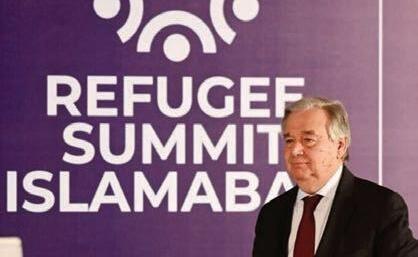
The announcement came as the army and heavily armed paramilitaries in Khartoum continued fighting, even as a widely breached ceasefire was extended for 72 hours.
UN emergency relief coordinator Martin Griffiths, who will serve as the envoy, said in a separate statement Sunday that Sudan’s “humanitarian situation is reaching breaking point.”
“I am on my way to the region to explore how we can bring immediate relief to the millions of people whose lives have turned upside down overnight,” he said.
However, massive looting of humanitarian offices and warehouses had “depleted most of our supplies. We are exploring urgent ways to bring in and distribute additional supplies,” he said.
British people urged to swear allegiance to the king
LONDON AFP
All Britons will be called on to swear allegiance to King Charles III at his coronation, an oath hitherto reserved for British nobility, in a move that has upset antiroyalists. The office of the Archbishop of Canterbury, Justin Welby, who will lead the coronation ceremony on May 6 at Westminster Abbey, announced on Saturday that the traditional “Homage of Peers” — during which representatives of the nobility kneel before the king and pledge allegiance to him — would be scrapped.
Instead, the ceremony will include a “Homage of the People”, with the archbishop calling on all people in the United Kingdom and other places where King Charles is the head of state to swear allegiance.

The archbishop will call on “all persons of goodwill in the United Kingdom of Great Britain and Northern Ireland, and of the other realms and the territories to make their homage, in heart and voice, to their undoubted king, defender of all”.
The order of service will read: “All who so desire, in the abbey, and elsewhere, say together: I swear that I will pay true allegiance to Your Majesty, and to your heirs and successors according to law. So help me God.”
British parliamentarians, but also Canadians since the British sovereign is their head of state, already swear allegiance to the monarch when they take office.
On Sunday, several elected representatives interviewed in the British media indicated that they will take the new oath during the coronation.

However, the plans to ask the public to pledge their allegiance to the king during the coronation have been branded “offensive, tone-deaf and a gesture that holds the people in contempt” by an anti-monarchy group.
Graham Smith, a spokesman for Republic, which campaigns for the abolition of the British monarchy, said: “In a democracy, it is the head of state who should be swearing allegiance to the people, not the other way around.” The anti-monarchist movement plans to demonstrate on Saturday.
The introduction of the new oath is one of the changes to the centuries-old ceremony, which the palace wants to evolve, particularly to reflect the country’s diversity. The last coronation was 70 years ago when Charles’ mother, Queen Elizabeth II, was crowned. She died in September aged 96.
The “obvious solution,” he added, would be to “stop the fighting.”
More than 500 people have been killed and tens of thousands of people forced to leave their homes for safer lo-
cations within the country or abroad since battles erupted on April 15.
“In light of the rapidly deteriorating humanitarian crisis in Sudan,” spokesman Stephane Dujarric said in a statement announcing Griffiths’ deployment, the envoy would travel “to the region immediately.”
“The scale and speed of what is unfolding is unprecedented in Sudan,” his statement said. “We are extremely concerned.”
Griffiths said that families were struggling to access water, food, fuel and other commodities, with some unable to relocate due to the cost of transportation out of the worst-hit areas.
Urgent health care, he said “is severely constrained, raising the risk of preventable death.”
Five containers of intravenous fluids and other emergency supplies were docked in Port Sudan awaiting clearance by authorities, he added.
China vows to deepen BRI cooperation with Mongolia
HONG KONG
AGENCIES
Chinese State Councilor and Foreign Minister Qin Gang on Monday called to deepen the Belt and Road Initiative with Mongolia during his meeting with Mongolian Foreign Minister Battsetseg Batmunkh in Beijing. Calling Mongolia China’s good neighbor, friend and partner,
Germany hopes to help climate with discount travel card
BERLIN
AFP
Germany launches on Monday a new flat-rate public transport ticket valid across the country, but the 49-euro ($54) price point has raised doubts about the pass’s potential impact.
Touting the monthly pass as a “revolution”, policymakers hope it will bring some relief for consumers amid soaring inflation, and encourage people to favour mass transit in the name of the environment. The “Deutschlandticket” offers unlimited access to Germany’s bus and metro systems, as well as local and regional trains — with only long-distance high-speed services not included.
Transport Minister Volker Wissing was quick to call the new initiative “the biggest public transport reform in German history”, but the pass’s success is far from assured. The association of German transport companies (VDV) expects 16 million of the country’s 84 million inhabitants to take up the offer. Roughly 750,000 tickets have been sold already, without counting people who will switch over from their current transport subscriptions.
Qin said China will continue to view China-Mongolia relationship in a strategic stance and a longterm view. He also stressed the need for improvement of political mutual trust between the two countries, urging in-depth coordination of development strategies. For her part, the Mongolian foreign minister stressed the country’s diplomatic priority remains to be developing a partnership that features
stability, friendliness and comprehensiveness. She doubled down on the country’s stance of adhering to the one-China principle, adding that the Taiwan question, and issues related to Hong Kong and Tibet are purely China’s internal affairs. The two sides also agreed to strengthen cooperation on the management of sandstorms so as to push for sustainable development jointly.
‘Zombie’ misinformation: ‘Rape Day’ hoax resurfaces on TikTok
WASHINGTON AFP
The hoax that rape was legal for a day was knocked down by fact-checkers two years ago. But it went viral again this year on TikTok, illustrating what researchers call “zombie” misinformation.
The stomach-churning falsehood that groups of men have declared April 24 as “National Rape Day,” giving them free rein to commit sexual violence, crept its way to TikTok fame in 2021, sparking alarm in countries including the United States and Britain.
In a sea of videos, many with millions of views, terrified women declared plans to lock themselves in their rooms all day and men vowed to protect them against imaginary assailants.
In one, a hulking bare-torsoed man appeared to sharpen an axe with a whetstone, warning troublemakers not to “touch anyone I know.”
An 11-year-old girl in Britain “afraid of being raped” went to school armed with knives, local media reported citing police officials.
TikTok users seized on reports of unrelated sexual crimes just before April 24 that year as evidence of the lurking threat, lending further credence to the myth.
Multiple fact-checking organizations debunked the misinformation. But that did not nip it in the bud.
This year, the hoax went viral on the same platform once again, the watchdog group Media Matters for America said, underlining what researchers say are the limits of debunking to stop or even slow the spread of misinformation.
“We call these kinds of situations zombie claims, meaning they are rumours that keep popping up, no matter how many times you debunk it,” said Laura Duclos, from MediaWise, a digital media literacy initiative of the nonprofit Poynter Institute.
“Some zombie claims pop up because they are related to a certain event or date,” Duclos told AFP.
FOR MISINFORMATION’
‘FODDER
Raising alarm about the return of “Rape Day” this year, TikTok users declared their intention to carry tasers, handguns, and in one video, a firearm “with the safety (catch) off.”
While AFP is not aware of any official reports of violent crimes because of the hoax, it lays bare the dangerous potential of even debunked falsehoods to whip up threats, hysteria and chaos.
When asked about TikTok’s response to the hoax, a spokesman told AFP that “content promoting this despicable behaviour would be removed if it was found on our platform.” Words such as “rape” are suppressed by TikTok, with a search redirecting users to a helpline and educational resources. But some videos can go completely undetected if they use no obvious keywords in their posts.
Users promoting the hoax also found workarounds such as “r@pe” and “national r day.”
Last week, the platform appeared to crack down on the loopholes immediately after AFP shared with the TikTok spokesman a screenshot of multiple “Rape Day” videos that came up using those search words.
Searches using those two workarounds now yield “no results found.”

TikTok “ought to get smarter” about preventing such hoaxes by rigorously studying patterns of how they spread, said S. Shyam Sundar, co-director of the Media Effects Research Laboratory at Pennsylvania State University.
“Sensational stories that prey on people’s innate fears and desires are always going to be a fodder for misinformation, regardless of whether they have been debunked in the past,” Sundar told AFP.
“Hoaxes may have a short shelf life but can linger in the warehouse for decades only to be recycled every now and then.”
‘GAME OF TELEPHONE’
The precise origin of this hoax in April — observed as sexual assault awareness month — is unclear.
How to finance the new policy was the subject of months of debate, delaying the roll-out of the ticket. An agreement was reached between the federal government and Germany’s states, which will both contribute 1.5 billion euros towards the ticket’s financing to avoid adding to the national rail operator’s debt pile.
The expenditure has come in for heavy criticism from the opposition, who argue the money could have been used to “improve and renovate rail infrastructure”, in the words of conservative (CDU) parliamentarian Michael Donth. Germany’s rail network is indeed creaking, with investment needs totalling around 8.6 billion euros a year for the next 10 years, according to official estimates.
RAIL DEAL: With services packed and facing regular technical problems, only 65.2 percent of long-distance trains arrived on time in 2022.
The issues on Germany’s rail system were put on full display last summer when the government first experimented with a heavily discounted flat-rate ticket. Between June and August, locals were able to travel the length and breadth of the country for just nine euros a month. Interest in the pass was understandably great, with 52 million people signing up for the offer. But operators struggled to manage the stampede.
“The solution is certainly not reducing the cost of subscriptions,” Christian Boettger, a rail expert from the Technical University Berlin, told AFP. Transport Minister Wissing has not ruled out an increase to the price of the new-model ticket in future to ensure it remains financially viable.

Similarly, getting people to abandon their cars to use public transport is often easier said than done. Many commuters who live far from the city centre do not have “rail infrastructure that could replace the car”, said Boettger.
‘CLIMATE TICKET’: According to the federal statistics agency Destatis, the introduction of the nineeuro offer saw road traffic “stagnate” compared with 2019, instead of rising.
Overall, road vehicles emitted 0.8 million additional tonnes of greenhouse gases in 2022, compared with the year before, according to the federal environment agency. The 49-euro ticket will particularly benefit “urban residents who already have a more expensive subscription”, transport expert Oliver Wittig told AFP. Germany is not alone in its efforts to boost rail use in order to reduce emissions from transport.
In Spain, free passes for local and regional trains were launched in September to try and get residents to leave their cars at home and ease the pressure from inflation. According to Spanish operator Renfe, 2.1 million tickets were handed out in the first quarter of 2023.
In Austria, a “climate ticket” gives users the chance to use virtually all of the alpine nation’s public transport network, including high-speed trains, for just over 1,000 euros a year. The success of the ticket has led to a “boom” in rail traffic, the Austrian operator OBB said.
China’s internet courts revolutionising online dispute resolution mechanism
ISLAMABAD
MIAN ABRAR
Dispute resolution through arbitration, mediation and cost-effective and timely measures has been a cherished dream for the communities globally.
In the new age, the need for confidential and quick
resolution of disputes based on justice and equality between commercial entities through cost-effective measures is a major challenge.
Confucius says that justice is the “real essence” of a progressive society and sustainable social development. Whereas, the real philosophy of socialism also speaks highly about justice and the Chinese model of Internet Court is the replica of it.
In this backdrop, China’s online internet courts are doing wonders and thousands of litigants are being provided immediate, transparent and cost-effective justice without spending money. In the age of Covid-19 pandemic, Chinese authorities focused on online dispute resolution through internet courts. Initially, these courts were established in Beijing, Guangzhou and Hangzhou.
The internet courts do not require citizens to appear in court as the ‘smart court’ allows participants to register their cases online and resolve their matters via a digital court hearing.
The Chinese internet courts handle a variety of disputes, which include intellectual property, e-commerce, financial disputes related to online conduct, loans acquired or performed online, patent registration, domain name issues, intellectual property and civil rights cases involving the Internet, product liability arising from online purchases and certain administrative disputes.
Internet Courts of China has legal and administrative protection in term of carrying the cases, giving verdicts and enforcement of decisions and laws of the land empower these courts to take all possible appropriate measures to protect the sanctity of the law which clearly upholds that Chinese are law-loving people and always respect others different views.
Since China has the biggest internet community in
the world which needs proper and accurate regulatory mechanisms to avoid any unwanted bugs in the system of delivery of services, banking & financial transactions, credit & debit cards, dysfunctional of ATMs cards etc. and last but not least one line shopping.
It is indeed anti-fraud, infringement, cheat, disinformation, and any corporate discrimination against one individual or society at large in the country which is praiseworthy.
The Beijing Internet Court deals in 11 different types of cases. It was established during September 2018. Till now more than 400,000 cases have been received and more than 85 percent have now been resolved which has the highest percentage of judicial efficiency in the world. There are specialized judges working 24/7 to resolve the

disputes between two parties.
On average every judge has 1000 cases which are indeed commendable. It usually takes 86 days to reach its conclusion. With special reference to maintain complete elements of impartiality and accuracy, all the decisions are being judged through different innovative means, making the Internet Court an apex status in the judicial system of China.
An official of Beijing Internet Court told this scribe that impartiality and justice are core characteristics of the online litigation process.
“Beijing Internet court is for protection of human rights under its zero-distance policy. We provide live streaming of court hearings which is a revolutionary online justice system. This is a blockchain evidence platform which is using 5G and big data technology. The parties have the right to appeal in financial court or intermediary court and 99.99 percent cases are heard online while 0.01 percent cases are offline hearings of cases,” the official said.
“The average time of the whole process is 86 days while most of the cases are of civil nature. But if the matter gets criminal in nature, it is referred to other courts and once decided, the civil case hearing may resume again in the internet court,” the official asserted.
The official said that mostly people turn to the internet court on weekends and the court follows the principle of establishing rules through judges.
“Interestingly, even foreign companies also have the right to approach the Chinese Internet Court to seek justice. Amazon, Apple and many other multinational companies have filed online petitions in this regard which clearly shows their utmost confidence in the judicial system of China,” the official added.

Audio leak of Indian journalists exposes facts behind Kashmiri’s killing in IIOJK
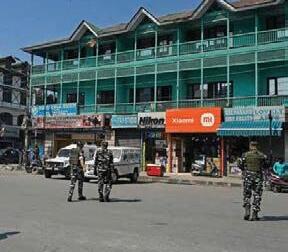
SRINAGAR
A leaked audio call between Munish Sharma, an Indian journalist, asking one of his subordinates to distort facts about the killing of Mukhtiar Hussain Shah who died in police custody on April 27, has exposed Indian brutalities and human rights violations in Indian Illegally occupied Jammu and Kashmir (IIOJK).
In the audio leak, Shrama could be heard directing Balkar Singh from Amar Ujala Newspaper, Samba, about filing of a news story to cover up the incident.
Mukhtiar Hussain Shah, was arrested on April 21 for interrogation by the Indian police on suspicion of his links with Poonch attack in which several Indian soldiers were killed, was briefly released and then summoned up for interrogation on April 26, but he died in mysterious circumstances . Locals of Mendhar area blocked the road in protest over his death.
India-based web portal The Wire said wrote that exposing the plan to cover up the killing of Mukhtiar
Hussain was a big success of Pakistani intelligence agency. The portal admitted that Pakistani intelligence agencies have the full capability to foil the designs of the enemy on its own soil.
According to the Wire, an Indian news outlet, the family of a 48-year-old man, who died after being named as a suspect in the Poonch attack case, has dubbed the magisterial probe ordered by the puppet IIOJK administration as an “official cover-up”.
Seeking a judicial probe into the death of Mukhtiar Hussain Shah, his family alleged that the order of the magisterial inquiry was “full of discrepancies”. “The order reads like an attempt to cover up the truth. It is a farce. We reject it and demand a judicial probe,” said Rafaqat Hussain Shah, Mukhtiar’s brother.
“Rafaqat claimed that there were “bruises” and “black marks” on Mukhtiar’s back and thighs, suggesting that he was tortured in custody. “If he has committed any wrong, let the investigators reveal the facts publicly. Why are they trying to hide the truth?” he was quoted by the Wire. Senior superintendent of police, Poonch, Rohit Baskotra, hung up the call when the Wire asked for his comments on the case, similarly, deputy commissioner Poonch, Inder Jeet, when contacted, said the matter was not within his jurisdiction now as he had been transferred out of the district.
Australian MP demands withdrawal of Indian troops from IIOJK, restoration of Article 370
AMSTERDAM STAFF REPORT

Dr Amy McMillan, Green Party, member of Queensland Parliament, Australia, has raised the blatant rights violations by the Modi regime in Indian illegally occupied Jammu and Kashmir in the local parliament.
Dr Amy addressing the parliamentarians said that she joined the human rights defenders and UN Special Rapporteur in condemning “the violence as well as oppression that has unfolded in Kashmir [IIOJK] for over many decades”.
“It has been four years since the revocation of Kashmir’s special status of Kashmir, one of the wider attacks on the sovereignty of the Kashmiris in the modern times. The revocation has led to a new wave of oppression and violence, restrictions on freedom of expression, preferably on internet and detention of journalists”.
In her speech, she referred to the UN Special Rapporteur on Minority and said that the loss of autonomy and imposition of direct rule by New Delhi suggests that the people of Indian illegally occupied Jammu and Kashmir have no longer their own government and have lost the power to legislate or mend laws in a way to ensure protection of their rights.
Dr Amy McMillan went on to add that measures like forced demographic changes are stripping the people of Kashmir of their land and resources. She said sexual violence against Kashmiri women has been among the highest in the conflict zones. She deplored that the detention of Kashmiri journalists have been legalized under so-called Public Safety Act. She demanded the immediate withdrawal of around one million Indian occupation troops from Jammu and Kashmir, restoration of Article 370 and release of detained Kashmiri journalists, including Fahd Shah, all other journalists and human rights defenders. The MP also demanded international probe into sexual violence against Kashmiri women.
SAPM MALIK EMPHASIZES IMPORTANCE OF PAKISTAN’S LARGE, DIVERSE WORKFORCE FOR ECONOMIC GROWTH
SPECIALAssistant to the Prime Minister (SAPM)
Jawad Sohrab Malik on Monday highlighted the significance of Pakistan’s top 10 largest labor force in the world and asserted that the country’s economic future was contingent upon its employment rate.
On International Labor Day, he paid tributes to the tireless determination and hard work of countless workers, acknowledging their critical contribution to Pakistan’s economic progress.
The SAPM’s message serves as a reminder of the importance of honoring and supporting the hard-working individuals who power Pakistan’s economy.
Jawad Sohrab Malik emphasized the need for social and economic fairness for workers in the past and stressed the importance of providing transparent access to essential benefits such as healthcare,
education, and other social benefits.
The SAPM believed that labor was an essential means of expressing human dignity and creative excellence, and thus called for dignified and decent work opportunities to be made available to workers.
Umar Sarfaraz Cheema booked in Gujranwala
GUJRANWALA STAFF REPORT
A case has been registered against Pakistan Tehreek-e-Insaf (PTI) leader and former Punjab governor Umar Sarfaraz Cheema at the Ghakhar police station, Gujranwala on Monday.
The complainant woman, Mehwish, claimed in the First Information Report (FIR) that the accused tried to abduct her at the ‘behest’ of PTI leader Umar Sarfraz Cheema and Tanveer Safdar.
The complainant also alleged that the accused individuals, including Farooq, Qudoos, Sadiq, Zeshan, and others, destroyed her crops by force of arms.
On the complaint of Mehwish, a case has been lodged in the Ghakhar police station, Gujranwala, while a police investigation is underway.
Last week, another case has been registered against Pakistan
He suggested that providing such opportunities was the best way to pay tributes to the substantial contribution that workers made towards uplifting the country’s economy in the past.
The SAPM emphasizes the need
for social and economic fairness for workers, which entailed providing transparent access to essential benefits such as healthcare, education, and other social benefits.
He suggested that providing such opportunities was the best way to pay tributes to the substantial contribution that workers make towards uplifting the country’s economy.
Jawad Sohrab Malik stressed upon the need to reform employment and labor policies in the past.
He believed that the skills development of the labor force could play a pivotal role in the alleviation of poverty if carefully planned and implemented in the context of available and emerging employment and income-generation opportunities.
The SAPM suggested that a comprehensive approach to skills development and employment policies was necessary for creating sustainable solutions that benefit both workers and the wider economy.
Two Lahore tourists die, 7 missing as jeep plunges into Neelum River
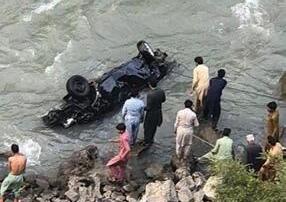
Tehreek-e-Insaf (PTI) President and Punjab chief minister (CM) Chaudhry Pervaiz Elahi. According to details, AntiCorruption Establishment (ACE) Gujranwala filed a case against PTI president citing a source report, in which the former Punjab CM has been accused of taking a bribe worth Rs2 billion for the contract of a development scheme.
Haji Tariq, the owner of the contracting company, SDO Highway Gujarat and previously arrested Sohail Asghar Chaudhry have also been nominated in the case. The FIR stated that Pervaiz Elahi awarded the contract of constructing Gujarat Old GT Road worth Rs10 billion to Haji Tariq’s company by accepting Rs2 billion as ‘bribe’.
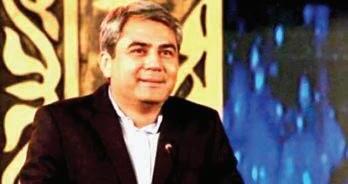

10 days earlier or later, elections will be held in any case: Sheikh Rasheed
RAWALPINDI STAFF REPORT
Awami Muslim League (AML) chief Sheikh Rasheed Ahmed said on Monday it is hoped that the judiciary would consider the possibility of success or failure of the negotiations before reaching a decision.
In a statement on Twitter, the former federal minister said it will be decided by May 10 that elections are to be held or the negotiations would work as an excuse to halt the electoral process. In any case, the judiciary, constitution and law will triumph, he stated.
Mr Rashid was quite perspicuous about his stance for holding elections saying that 10 days earlier or later, elections will be held.
He said the nation expects important decisions from the Supreme Court this week.
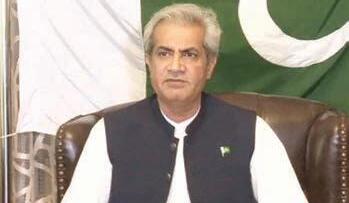
He also posed questions demanding answers on behalf of the public. He said the nation wants to know what happened to the agreement with the IMF and also to matter of the leaked audio of the Foreign Minister and the Prime Minister.
According to Mr Rashid, the Pakistan Democratic Movement (PDM) is in disarray and the alliance is facing differences from within.
Punjab CM Naqvi salutes heroic struggle of labourers
him the friend of Allah,” he added, and saluted the dignity of labourers, saying that no nation can tread on the path of progress and success without them.
CM Naqvi then highlighted the initiatives taken by incumbent government for the labour community stating, “the caretaker government has raised the minimum wages of workers from Rs25,000 to Rs32,000.”
NEELUM VALLEY STAFF REPORT
Two tourists died, five were injured and another seven went missing after a jeep, coming from the upper belt of Neelum Valley with 14 occupants, plunged into the Neelum River on Monday.
According to District Disaster Management Authority (DDMA), the incident took place when the jeep, coming from Taobat (the last village of Neelum Valley) to Kel Town careened into the Neelum River near Phallawi owing to bad road condition.
The group of 12 people, all of whom belonged to Lahore, were on board the jeep with the driver and his helper.
Rescue teams rushed to the scene soon after receiving the information and started rescue operation.
The rescue officials retrieved a body and rushed the five injured to a hospital while one injured succumbed to his injuries in the hospital. Search operation for seven others was still underway.
The deceased and injured were identified as Hussain s/o Sheraz Ahmed, Muhammad Zameer Sheikh s/o Sheikh Safdar, Moin Ahmed, s/o Javed Iqbal Ibrahim s/o Abdul Majeed driver Shandaas Neelam Rafiq s/o Nadeem and helper Shandaas Neelam.
Meanwhile, Umair s/o Safdar Sheikh, Shahnawaz s/o Sheikh Maqsood, Azir s/o Ashraf, Bilal s/o Muhammad Maqbool, Ghulam Meeran s/o Javed Iqbal, Zeeshan, Waleed, Rafiq, and Rahim were among the missing persons.
The rescue and relief operation along with media coverage of the tragedy was hampered by the nonavailability of communication system in the area.
Balochistan braces for more thunderstorms
QUETTA STAFF REPORT
Hot and dry weather will persist in most of the districts while gusty winds and thundershowers are likely in the northern coastal plains and southern regions of Balochistan during the next 24 hours.
According to the Meteorological Department, gusty winds and thundershowers are likely in Quetta, Kalat, Khuzdar, Ziarat, Barkhan, Chaman, Kalat, Dalbandin, Awaran, Panjgur, Kharan and Lasbela.
LAHORE STAFF REPORT
Punjab Chief Minister Punjab Mohsin Naqvi in his message on the International Labour Day on Monday felicitated heartily all the manpower of Pakistan and also expressed his good wishes for them.
The Chief Minister stated that this day reminds us of the strug-
gle of the martyrs of Chicago against oppression and brutality and that the labourers are our heroes who augment the economy by earning legitimate livelihood.
Mohsin Naqvi also paid tribute to the heroic struggle of the labourers in the construction and progress of the country.
“The dignity of the labourers has been highlighted by declaring
He further emphasised that Pakistani manpower needs to be equipped with advanced technologies in order to increase the productivity.
He continued by saying that workers and employers are partners in efforts of national development.
Towards the end, CM Mohsin Naqvi pledged allegiance to protect the rights of workers and to take steps for their collective welfare.
The maximum temperature was recorded at 26 degrees Celsius in Quetta, 24 degrees Celsius in Ziarat, 22 degree Celsius in Kalat, 24 degree Celsius in Pishin, 33 degrees Celsius in Gwadar and 35 degrees Celsius in Sibi.
In Punjab, areas including Narowal, Kartarpur and suburbs received heavy rain which turned the weather pleasant. The rain, however, caused the feeders to trip, suspending the power supply to many areas. “It will continue raining for the next 24 hours,” the Meteorological Department said.
Cold winds also turned the weather pleasant in Lahore, Hafizabad and Karachi. Temperature is expected to hover around 24 degree centigrade in Lahore and 34 degree centigrade in Karachi.
Indian troops martyr 21 Kashmiris in four months, this year
SRAINAGAR STAFF REPORT
As blood of innocent Kashmiris continue to flow for over seven decades in Indian illegally occupied Jammu and Kashmir, Indian troops in their unabated acts of state terrorism martyred 21 Kashmiris, including three teenagers, in just last four months, this year.
According to the data issued by the Research Section of Kashmir Media Service, today, at least 50 civilians were injured due to use of brute force by Indian police and
paramilitary troops on defenceless people of Jammu and Kashmir. During the period, Indian Army, paramilitary Central Reserve Police Force, dreaded National Investigation Agency and State Investigation Agency arrested over 400 civilians, including Hurriyat leader, Bilal Ahmed Siddiqui, political activists, youth, students and journalist Irfan Meraj. Many of them were booked under draconian laws Unlawful Activities (Prevention) Act and Public Safety Act. The forces’ personnel conducted 860 cordon and search operations during the
period. Meanwhile, the troops martyred three Kashmiris in last month of April and arrested at least 94 Kashmiris.
The grisly killings meant to terrify Kashmiris but every killing instills new vigour in the freedom struggle. Meanwhile, over four thousand Hurriyat leaders, activists, youth, students, journalists and human rights defenders including APHC Chairman, Masarrat Aalam Butt, Muhammad Yasin Malik, Shabbir Ahmad Shah, Aasiya Andrabi, Naheeda Nasreen, Fehmeeda Sofi, Nayeem Ahmad Khan, Mohammad Ayaz Akbar, Peer Saifullah,
Merajudin Kalwal and Farooq Ahmad Dar along with two dozen Kashmiri women continue to remain lodged in different jails of India and IIOJK.
Besides, other Hurriyat leaders and activists including Shahidul Islam, Maulvi Bashir Ahmed, Bilal Siddiqi, Ameer Hamza, Mushtaq-ul-Islam, Abdul Samad Inqilabi, Dr Hameed Fayaz, Abdul Rashid Dawoodi, Mushtaq Ahmad Veeri, Abdul Majeed Dar Almadni, Muhammad Sharief Sartaj, Noor Muhammd Fayaz, Muhammad Yousuf Falahi, Fayaz Ahmed, Dr Muhammad Qasim Fakhtoo, Dr Muham-
mad Shafi Shariati, Ghulam Qadir Butt, Syed Shahid Yousuf, Syed Shakeel Yousuf, Muhammad Yousuf Mir, Muhammad Rafiq Ganai, Hayat Ahmed Butt, Adv Zahid Ali, Zaffar Akbar Bhat, Eng Rashid, human rights defenders Khurrum Parvez, Muhammad Ahsan Untoo, journalists Aasif Sultan, Irfan Majeed and Fahad Shah are also behind bars. Senior APHC leader Mirwaiz Umar Farooq continues to remain under house detention in Srinagar since August 2019. These detainees are the worst victims of worst political vendetta of the Modi regime.
IMRAN WARNS GOVT, ITS ‘HANDLERS’ AGAINST POLLS DELAY BEYOND BUDGET
PAKISTANTehreek-i-Insaf
(PTI) Chairman Imran Khan on Monday warned the coalition government and its “handlers” against massive street protests, saying that if the rulers and their handlers think they could delay the elections post federal budget, warning that his party and the nation would hold street agitation against this strategy.
“If the rulers defy the Supreme Court’s orders of holding elections on May 14 and violate the Constitution, there would be lawlessness in the country. The PTI would resort to street agitations until the Constitution and the rule of law were restored,” said the former prime minister while addressing a party rally held here on Saturday in connection with International Workers’ Day and also to express solidarity with the Supreme Court of Pakistan.
He led the rally from Liberty Chowk to Nasir Bagh and many PTI workers and supporters accompanied him.
Khan said that they stand with the Supreme Court of Pakistan and the Con-
stitution, adding that till now they have held peaceful public gatherings and political rallies and maintained that the next week would be decisive.
He said on Tuesday, they would hold talks with the rulers with a onepoint agenda: if they agree to dissolve the assemblies before May 14 then the PTI would be willing for ‘same day elections’ in the country.
Imran Khan has said that they are ready for simultaneous elections if the government dissolves assemblies tomorrow.
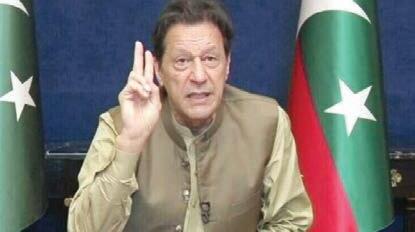
Qureshi asks why PML-N hindering negotiations
ISLAMABAD STAFF REPORT
As the government and the opposition are set to enter the final round of election talks, PTI leader Shah Mahmood Qureshi on Monday wondered why PML-N leaders Khawaja Asif and Javed Latif were becoming a hindrance in the ongoing dialogue.
His remarks come hours after PML-N’s Javed Latif expressed his disapproval towards the government-PTI dialogue, saying that talks should never be held with “terrorists” and those who “want to destroy national institutions”.
Talks between the government and the PTI commenced last week on the advice of the Supreme Court, bringing an end to a long-time deadlock.
After two rounds of talks, the parties are now expected to hold the third round of negotiations tomorrow (Tuesday).
The “almost final round” of talks — which was earlier scheduled for 11am — will be held at the Senate Secretariat at 9pm. However, chances that the dialogue will yield positive results are starting to look “very slim” as PTI Chairman Imran Khan has demanded the dissolution of the National Assembly by May 14 to pave the way for a successful outcome of talks.
The government has termed Imran’s ultimatum “impracticable” and asked him to be more flexible for the success of this dialogue between the two sides.
A day earlier, Defence Minister Khawaja Asif said that he does not see a “positive outcome” of the talks. “What will be the result of the negotiations with the PTI as they are setting conditions,” he said.
PML-N Secretary General and Federal Minister for Development Ahsan Iqbal also said: “We want to tell Imran Khan that he cannot hold talks at gunpoint. The first condition of talks is, there are no pre-conditions. Mr Khan is so desperate that he wants his way or the highway.”
Talking to the media during a PTI rally in Lahore today, Qureshi asserted that he was prepared to attend the third round of talks tomorrow (May 2).
“But today, I want to ask Dar sahab, on one side you are representing the senior leadership of the PML-N […] you have the confidence of Nawaz Sharif and you are sitting on the table [for talks] … tell me, are Khawaja Asif, Ahsan Iqbal and Javed Latif not a part of your party?
“And if they are a part [of your party], then why are they becoming a hindrance in the negotiations?” he asked, wondering the same about Pakistan Democratic Movement chief Fazlur Rehman — who has refused to show flexibility on the talks.
Addressing former president Asif Ali Zardari, the PTI leader said that the PPP always claimed to have upheld the Constitution and asked “why is it then that you are standing with those violating the Constitution today?”
He went on to say that the nation was aware of the political situation today and stated that the PTI was ready for “negotiations, elections and a movement”. Qureshi revealed that his party had put forward a proposal, after discussions with Imran, in the second round of talks. “I want Dar sahab and his team, who sought time to review the proposal, to give a clear response to it.”
He added that the government was welcome to accept PTI’s proposal but at the same time warned that if they did not do so, “I will put all of our efforts of negotiations before the Supreme Court and the decision will be in its hands”. Earlier today, Latif questioned the rationale of talks with those calling the government “Mir Jafer and Mir Sadiq”.
“The government should confirm the dissolution of assemblies before May 14 in the next round of talks. We are ready for elections on the same day if assemblies dissolve tomorrow,” he said.
Imran Khan strongly criticized the PDM parties and said that they will only hold polls after seeing an opportunity to get victorious and removing Imran Khan from their path. “They want to jail Imran Khan or kill him. They attacked Pervaiz Elahi’s home like dacoits after they attacked my home and arrested PTI workers.”
He said, “Ali Amin Gandapur is being shifted to different jails and my security officer Iftikhar Ghumman was also arrested. They are arresting PTI workers to weaken our political party.”
The PTI chief announced that they will take to the streets if anyone tries to break the Constitution and go against the Supreme Court (SC). “We will not be silent if anyone goes against the Constitution.”
Khan vowed that PTI will stand with the Constitution if the rulers try to run away from elections and violate the constitution. “We have always staged peaceful protests due to the deteriorated economic situation. If they break the Constitution then there would the law of jungle in Pakistan.”
“This country is heading towards destruction and unemployment is rising day by day. If they reject the Supreme Court’s decision then the nation will come out of their homes with me.”
Imran Khan said that PTI is holding the rally to show solidarity with the labourers and for the rule of law. “Everything will be clearly seen in the next week whether there is the rule of law in this country or not. PTI will stand with the Chief Justice of Pakistan (CJP).”
Sugar price hike has nothing to do with exports, says PSMA
LAHORE
SHAHAB OMER
The Pakistan Sugar Mills Association (PSMA) has categorically rejected a news item which appeared in a section of the media that the current surge in the prices of sugar is due to the export of the commodity.
In a statement, PSMA mentioned that the sugar industry of Pakistan was demanding permission for the export of surplus sugar, since March 2022, but the government had been continuously delaying it. Then the price of sugar was in the range of Rs 80-85 per kilogram, while the cost of production of sugar ranged between Rs 105-110 per kilogram. Pakistan then had a surplus sugar stock of 1.2 million metric tons. The sugar industry had asked the government to allow export of at least 1.0 million tons of surplus sugar out of the 1.2 million tons surplus. However, the government inordinately delayed the decision.
The association also added in their statement that timely exports would have given the correct signal to the farmer to plant more sugarcane or improve the yield of their crop by timely inputs. In December 2022, the government finally gave permission
to export 250,000 metric tons of sugar. After fulfilling all governmental prerequisites, the sugar industry has exported 172,180 metric tons of sugar till March 2023 earning approximately USD 85 million.
According to the PSMA, the continually increasing international sugar price meant that sugar domestically in Pakistan is priced at half of prices across our border in Afghanistan. PSMA through its spokesman had continually stressed the need to Control our porous borders to Afghanistan or otherwise the huge arbitrage would make it lucrative to smuggle this commodity, as well, along with what has been seen happening in urea and wheat previously.
PSMA had time and again sensitised the government that the smugglers mafia would take advantage of higher sugar prices in the international market and smuggle sugar out of the country. If the government had given due consideration to the apprehensions and demands of the sugar industry then its earnings of foreign exchange would have been added to the national exchequer instead of landing into the pockets of smugglers mafia. Sadly, the industry couldn’t export the surplus and the country couldn’t benefit from this due to
the huge smuggling.
It is also important to address the rising cost of sugar production in Pakistan. In the last crushing season, the government had increased the minimum support price of sugarcane from Rs 225 per 40kg to Rs 300 per 40-kg (a 33 percent increase), resulting in jacking up the cost of production of sugar to Rs 130 per kilogram. While sugarcane is a major cost component, there are other key elements, as well. An increase in Sales Tax from 17 percent to 18 percent means that with any increase in the price of sugar the federal government gets 18 percent benefit. They also added that the doubling in the mark-up rates of banks from 12 percent to 24 percent has been a major reason for cost increase, since sugarcane payments are made in three to four months while sugar is sold all year around due to its monthly distribution. Other factors that contribute to the issues include raising of minimum labour wages from Rs 16,000 to Rs 25,000, increase in the prices of different chemicals and spare parts of the machinery of around 70-80 percent as they are imported and the exorbitant rise in the oil prices leading to higher transport costs for sugarcane.
CONTINUED ON PAGE 03
Justice Isa recommends elevation of SHC, PHC chief justices to SC
ISLAMABAD STAFF REPORT
Justice Qazi Faez Isa has recommended the names of Sindh High Court (SHC) Chief Justice Ahmed Ali M Shaikh and Peshawar High Court (PHC) Acting Chief Justice Musarrat Hilali for elevation to the Supreme Court.
He made the recommendations in a letter sent to all members of the Judicial Commission of Pakistan (JCP) — a constitutional body that decides appointments to the SC, high courts, and the Federal Shariat Court.
The JCP is headed by Chief Justice of Pakistan (CJP) Umar Ata Bandial, the next senior-most four judges, a former chief justice or SC judge, the law minister, the attorney general, and a senior SC advocate nominated by the Pakistan Bar Council.
In his letter, Justice Isa urged that a meeting of the JCP be called soon to decide the appointments.
The Supreme Court comprises 17 judges, of which two positions are currently empty.
The JCP meeting should consider the names of the two judges on the seniority principle, he urged.
The JCP had recommended Justice Shaikh’s appointment as an ad hoc judge of the Supreme Court in 2021. However, Sheikh had declined the appointment, and in a letter written to the then-chief justice Gulzar Ahmed and President Dr Arif Alvi, had said he did not accord his consent to the appointment.
Sheikh had taken oath as the SHC chief justice on March 15, 2017. Meanwhile, Justice Hilali took oath as the PHC acting chief justice on April 1, 2023 — becoming only the second woman to be appointed as a high court chief justice and the PHC’s first.
The JCP has already recommended her name for regular appointment as the PHC chief justice and a meeting of a parliamentary committee in this regard is scheduled to be held on May 4.
PROFIT REPORT LAHORE
The price of tea in the country is continuing on its upward march, with what was once an affordable and innocent habit quickly turning into an unaffordable luxury, with Dawn reporting that the price of a single cup of tea has gone up to Rs 60 in Rawalpindi from Rs 50.
This is the third significant increase in the price of a cup of tea in the past 18 months. The first increase in the cost of a cup of tea was in the last months of 2021 when the cost was raised from Rs30 to Rs40. The second raise from Rs40 to Rs50 took place in the mid of 2022 and the latest increase came about just after Eidul Fitr. This consistent increase in the price of a cup of tea comes from a combination of elements that have to do with inflationary trends, the existing import restrictions in the country, and our failing agricultural system. A single cup of tea is made from tea leaves or patti, milk, and sugar. In a recent report, Profit calculated how if a person consumes three cups a day, every day, the number multiplies to Rs4,500 a month. Now, with prices at Rs 60 per cup, it will cost an additional Rs5,400 a month. So what is the story? Right before Ramazan the price of black tea (loose) had swelled to Rs1,600 per kg from Rs1,100 thanks to curbs being put on imports in the country. So why did prices of tea skyrocket by more than Rs 500 per Kg and are expected to continue to be affected by inflation after Ramzan?
Pakistan, unfortunately, barely grows any of its own tea and is in fact the world’s largest importer of tea spending $596 million on it last year. Meanwhile, India produces 0.94m tons of tea a year, consuming 70% of it domestically. At the time of partition, India was producing a total crop of 600 million pounds annually, nearly half of which was being exported to England. Now, up until 1971 a lot of the domestic tea consumption in Pakistan was met by tea farmers in East Pakistan.
However, with the independence of Bangladesh Pakistan was suddenly a country that grew tea nowhere, but had a population that was hooked on the hot drink. So what did they do?
Pakistan simply started importing tea from India and Sri Lanka. The substance was cheap and not a major strain on the import bill. The first attempt to grow tea was made in 1982, when Chinese experts reported the hilly terrain of Mansehra would be ideal for teagardens. Since then, however, progress has been slow and in the past decade down-right regressive. Tea was first planted in Mansehra in 1986, and then in 2001 in Swat both by the government and private companies. At its peak, Pakistan was growing tea on nearly 900ha.
However, currently this is limited to an area of 100 ha under Unilever Brother Support in Mansehra. The issues have been typical. In the initial days, the government was providing support like free nursery plants to encourage growth. As soon as the schemes ended, interest died out too.
This has been the main driver of tea prices going up.
Meanwhile, increased prices of milk and sugar because of inflationary pressures and shrinkflation have also contributed to the rising prices of this once everyday pleasure. There has been an increase in sugar from Rs90 per kilogramme to Rs130 per kg, the price of gas cylinders increased to Rs4,500, tea from Rs1,500 to Rs2,100 and milk from Rs150 kg to Rs200 per kg. As import restrictions continue to be strict with no hope of local production anytime soon and inflation at an all time high, the price of a single cup of tea will only continue to go up.
Top TTP terrorist killed in Dera Ismail Khan
RAWALPINDI
STAFF REPORT
Security forces on Monday killed a top commander of the Tehreek-e-Taliban Pakistan (TTP) in an intelligencebased operation (IBO) in Dera Ismail Khan district of Khyber-Pakhtunkhwa province.
According to details, the operation against terrorists was carried out on Monday (May 1), during which TTP Gandapur commander Jabbar Shah was killed, while two other terrorists were injured.
The killed terrorist was reportedly involved in a series of attacks on law enforcement agencies, religious groups, and polio teams in the Daraban area.
He was also involved in carrying out extortion activities for the terrorist outfit.
This is another successful operation by the security forces in the area, as they continue their efforts to eliminate the threat of terrorism from the region.
The TTP has been responsible for numerous attacks in Pakistan, targeting both civilians and security forces. The group is known for its brutal tactics, including suicide bombings and beheadings.
Pakistan has been fighting a war against terrorism for over a decade, and the security forces have been actively pursuing and targeting militant groups in the country.
Government approves first national energy efficiency policy
ISLAMABAD GHULAM ABBAS
The Government has approved the first National Energy Efficiency and Conservation Policy 2023.
The National Energy Efficiency and Conservation Authority (NEECA) serves as the federal focal agency mandated for initiating, catalyzing, and coordinating all energy conservation activities across all sectors of the economy.
Former Energy Conservation Centre (ENERCON) was transformed into NEECA by an Act of Parliament (National Energy Efficiency and Conservation Act) in the year 2016.
As per details the promulgation of the National Energy Efficiency and Conservation (NEEC) Act of 2016 strengthened the EE&C agenda in the country and provided an overarching scope, under its sections 7(c), 10, and 11, for an inclusive and nationally
representative NEEC policy. The policy aims to achieve energy-saving targets of 9 Million Tons of Oil Equivalent (MTOE) till 2030, thereby reducing 35 MTCO2 emissions. Through its market-enabling implementation approach, the NEEC policy offers a monetary saving of 6.4 billion USD/annum to the national exchequer post-2030.
The policy identifies measures to ensure deep-rooted institutionalization, operationalization, and implementation of EE&C in the country and consists of Sectoral measures for Industry, Building, Transport, Energy, and Agriculture sectors. The policy also informs, on the basis of technoeconomic analysis, enforcement mechanisms required for adoption and compliance with EE&C regulatory measures along with precise guidelines for coordination with the provincial governments and regions.
The NEEC Policy 2023 has some salient regulatory features, including ensuring compli-

ance with minimum energy performance standards and labeling regimes for electric (Fans, Air Conditioners, Refrigerators, Motors, LEDs) and gas appliances (Geysers, space heaters, cook stoves), equipment, and products.
It also mandates energy conservation building codes, mandatory energy audits for facilities and business operations of designated consumers, accreditation of testing laboratories, and the development of industrial assessment centers in collaboration with universities in the industrial hubs of the country.
Other features of the policy include the mandatory procurement of energy-efficient equipment in all public procurements by incorporating Minimum Energy Performance Standards (MEPS) in PPRA rules, evaluation of energy-efficient appliances during basic load profiling for electricity or gas connection across commercial, household, industrial, agriculture sectors, ban on the manufacturing of inefficient lighting like in-
candescent bulbs, all kinds of high-intensity discharge and fluorescent lamps, and setting the energy standards and recommending preferential use of energy.
The NEEC Policy also provides for the effective complaint redressal framework, through the establishment of Energy Conservation Tribunal (ECT), to address the issues and problems faced by designated consumers, manufacturers, and/or entities regarding the energy efficiency and conservation standards of the products and equipment.
It also sets the energy consumption thresholds for designated consumers, across the sectors, shall be defined and notified, mechanisms for mandatory energy-saving plans along with clear targets and timelines for reduction in the inefficient energy use shall also be developed and implemented in the key sectors, especially Power and Gas Utilities to cut their energy losses and im-
prove energy efficiency.
Moreover, the NEEC Policy 2023 provides for concessional financing facilities to retrofit existing buildings, appliances, and industrial facilities with a goal to shorten the payback times and encourage investments in the EE&C.
It also encourages the issuance of energy-saving certificates and bonds to designated consumers as well as the general public. The policy also aims to develop fiscal incentive schemes or measures to promote localization, production, usage, and compliance of energy-efficient products, equipment, services, and practices in the country. These incentives shall promote the indigenization plans of various sectors of the Government.
The NEEC Policy also emphasizes extensive awareness-raising campaigns and activities to encourage the culture of vehicle-free weekends.
How unaffordable will an average cup of tea become?
